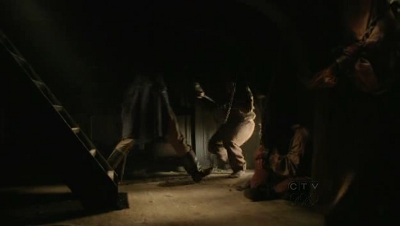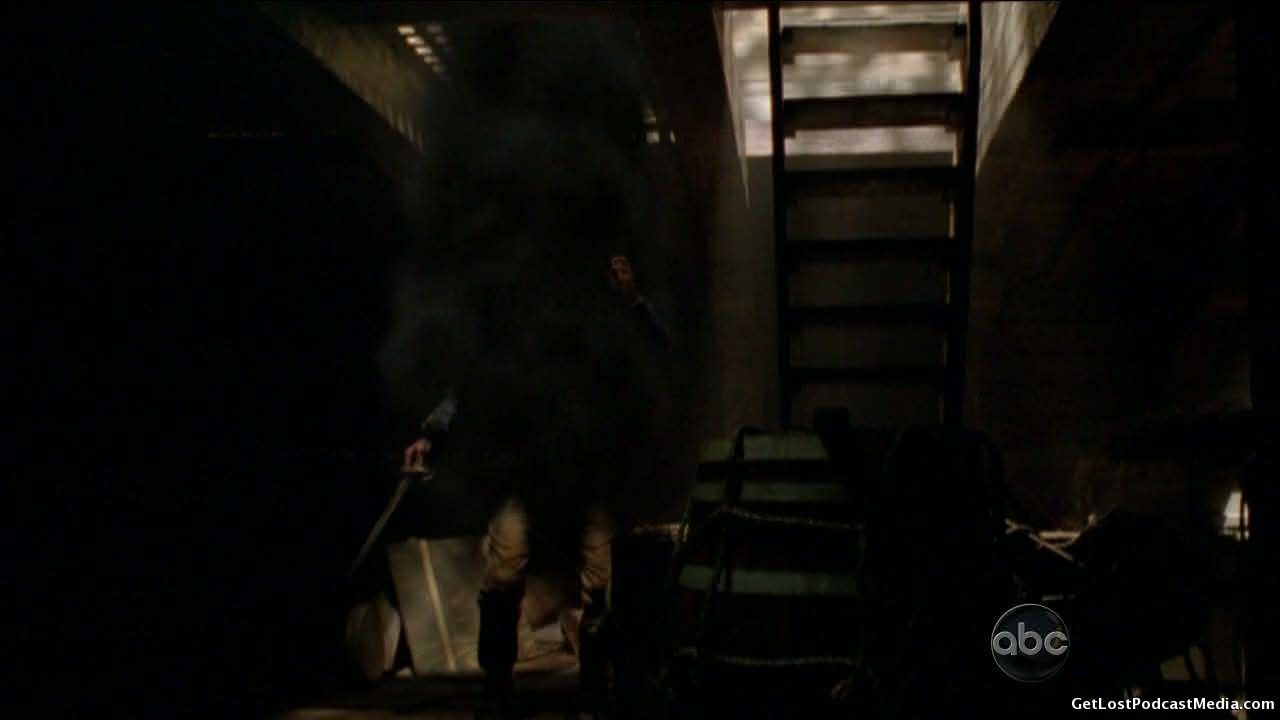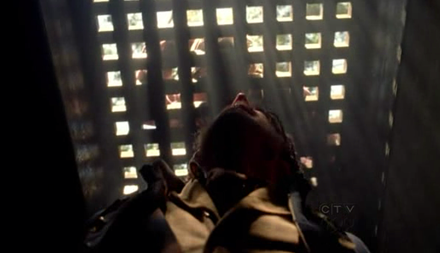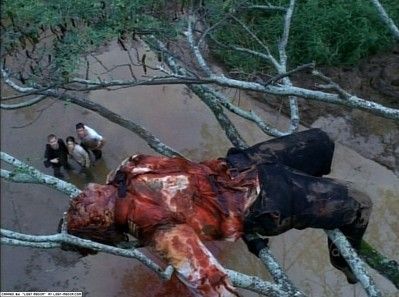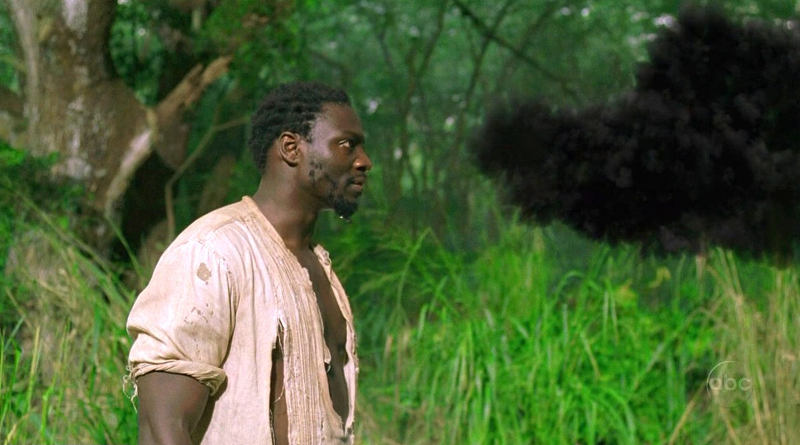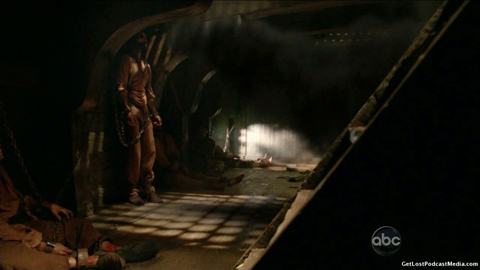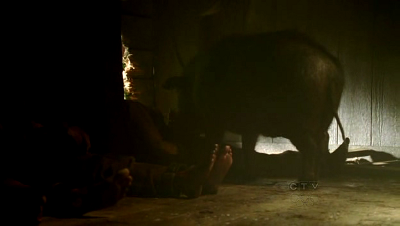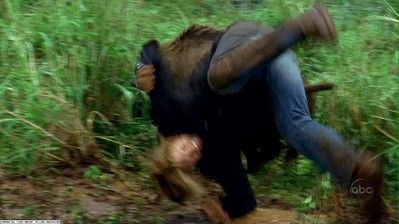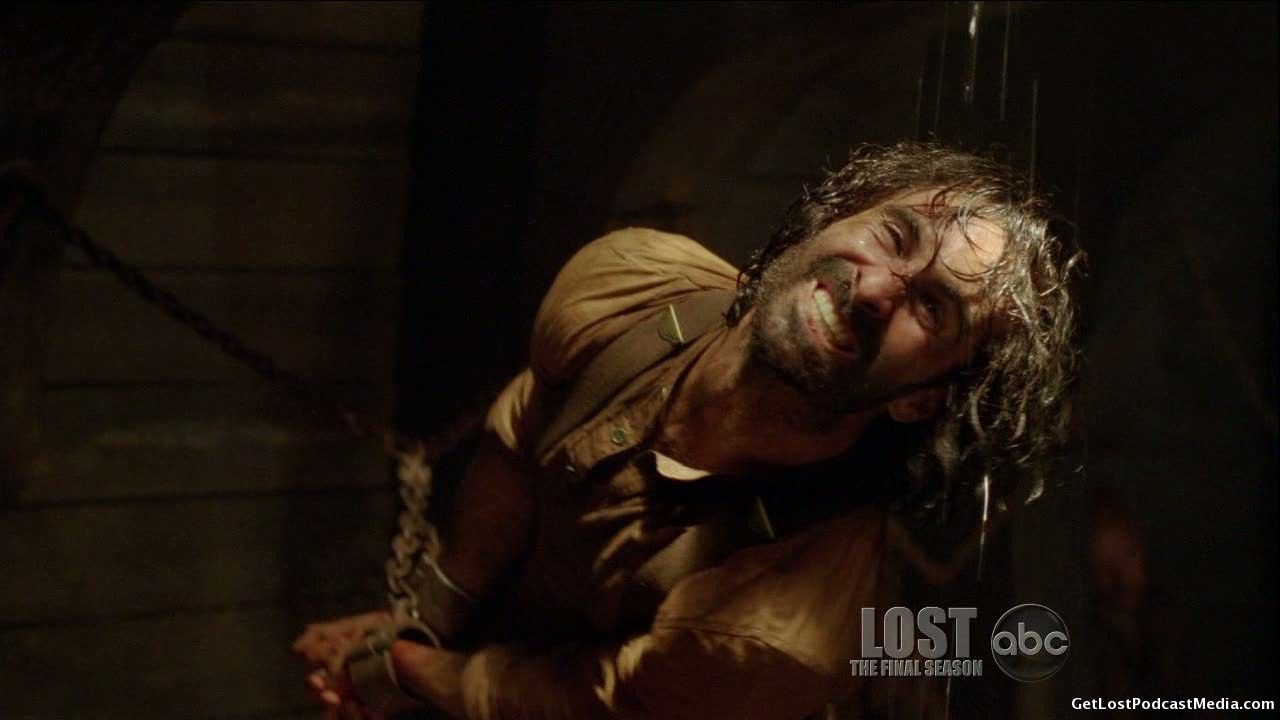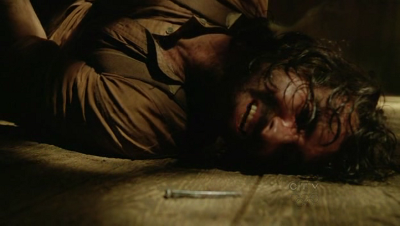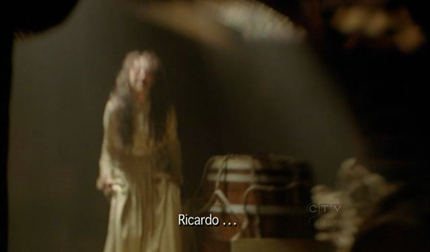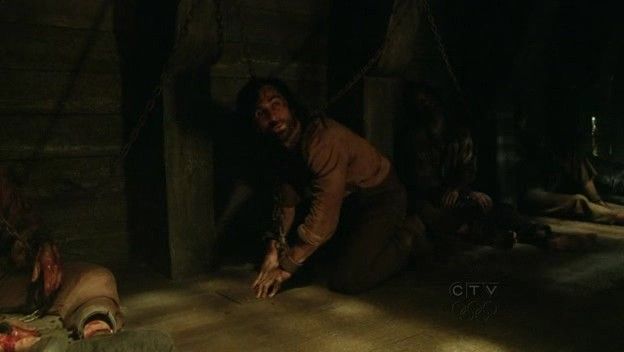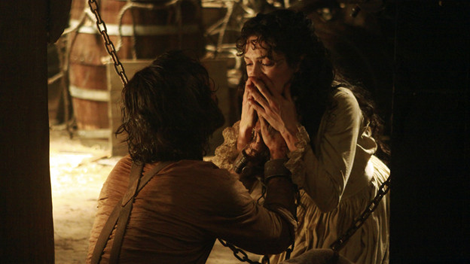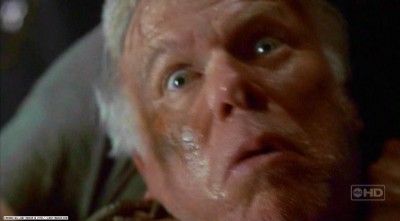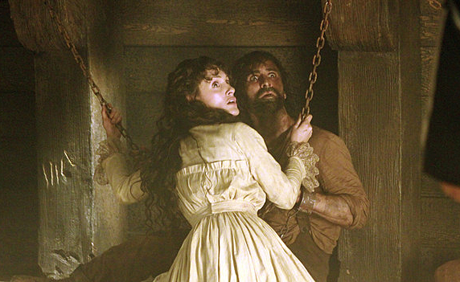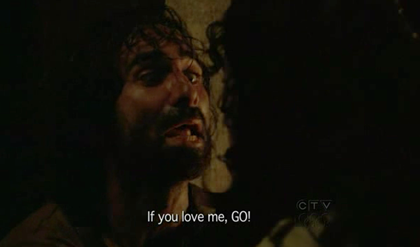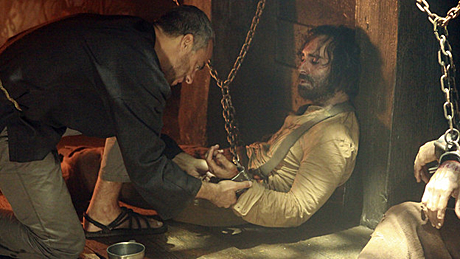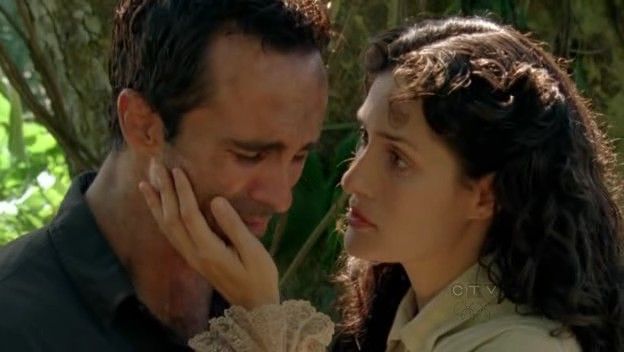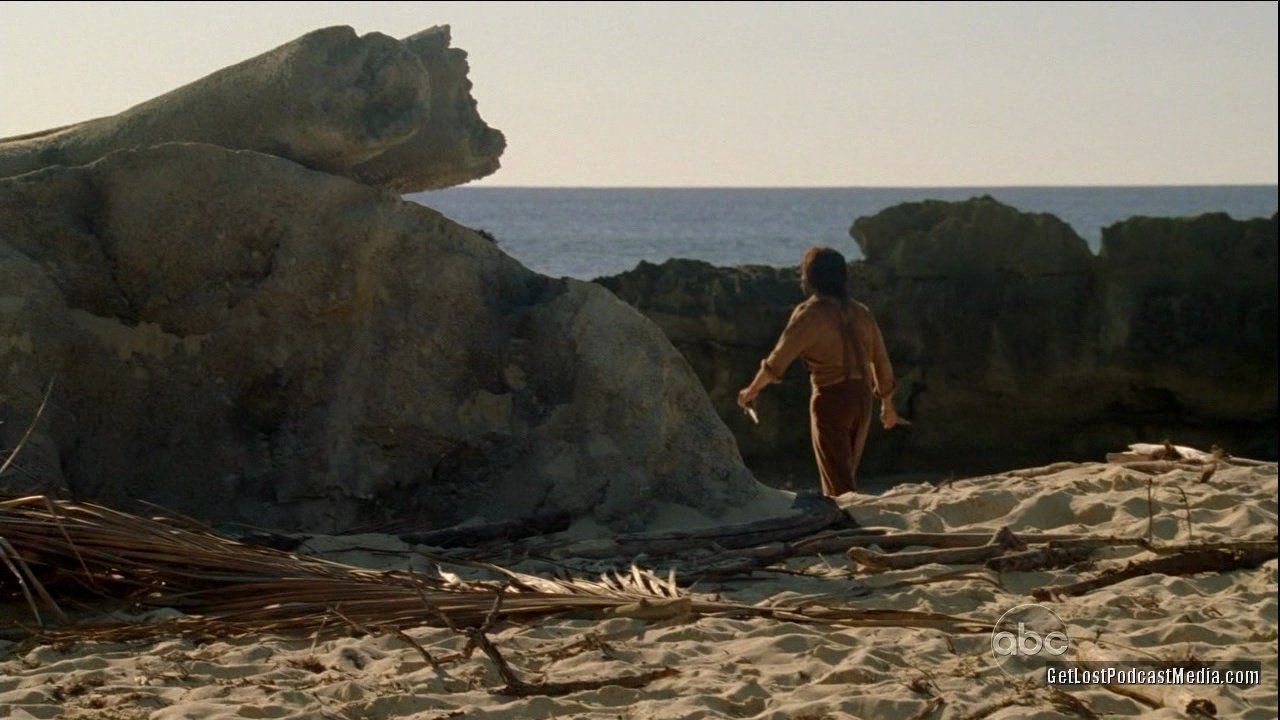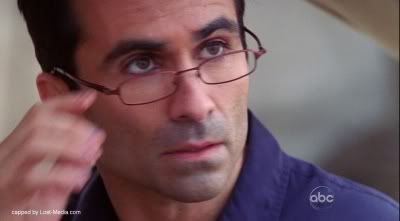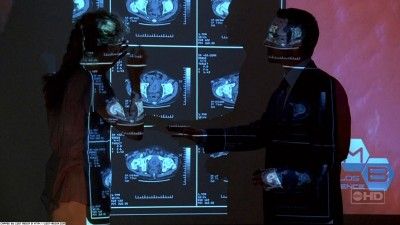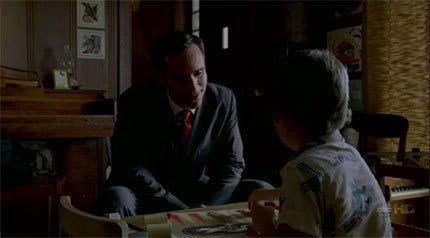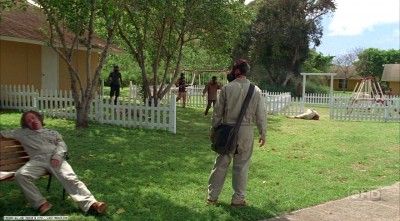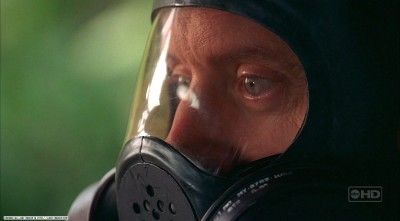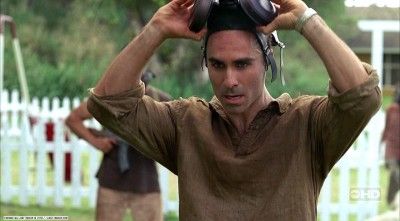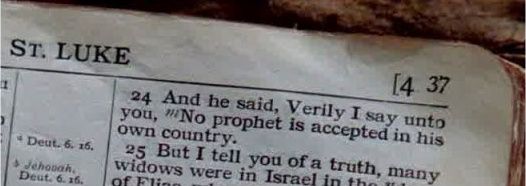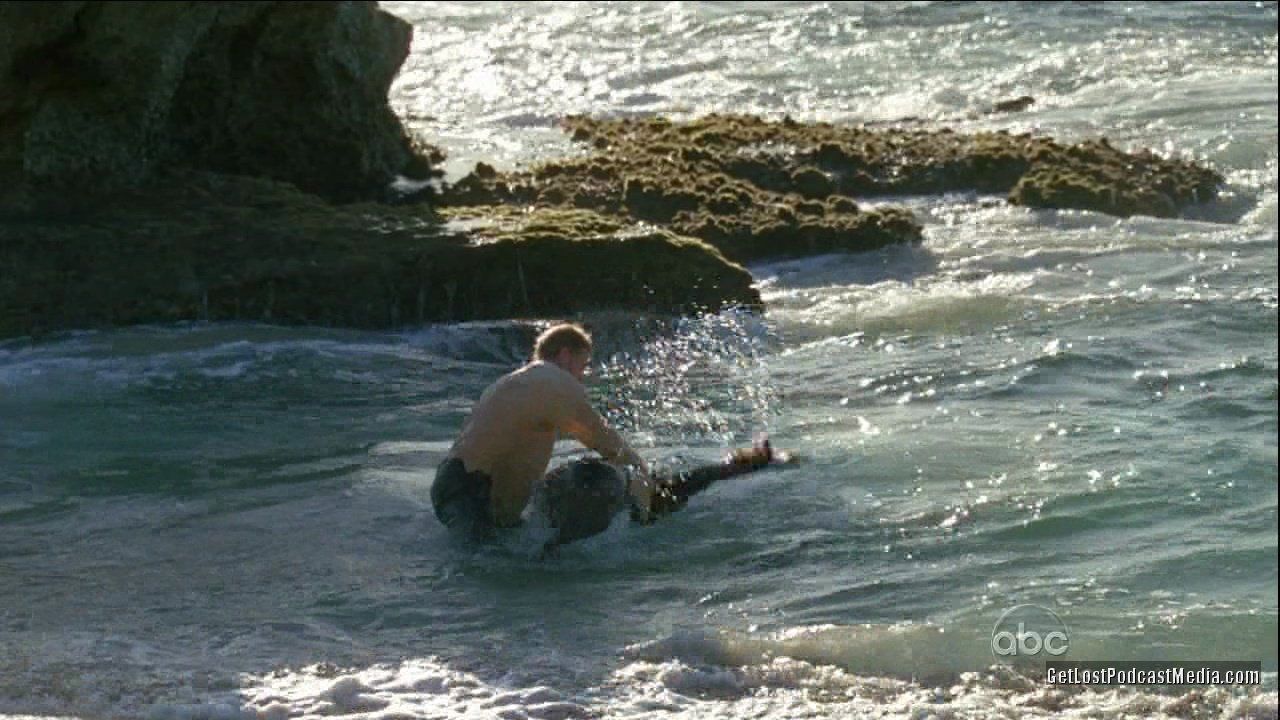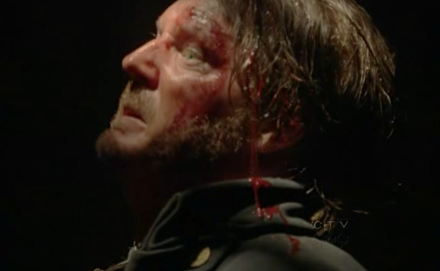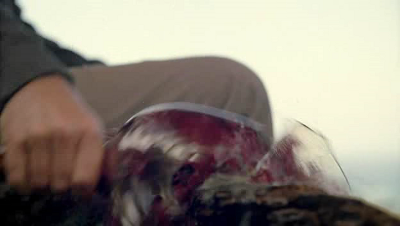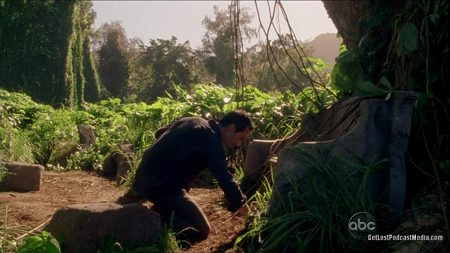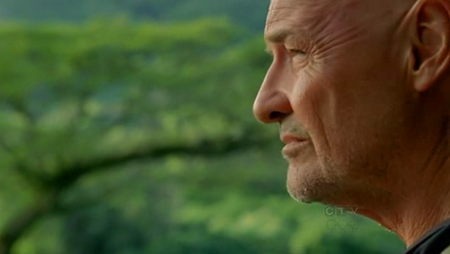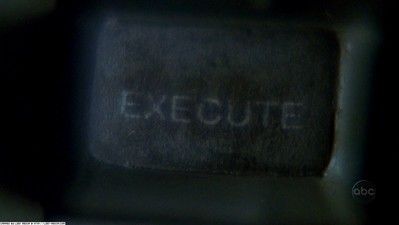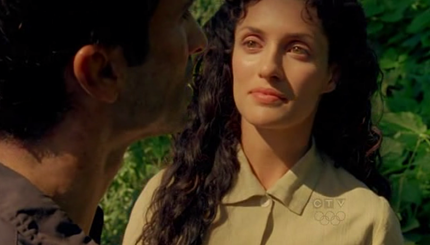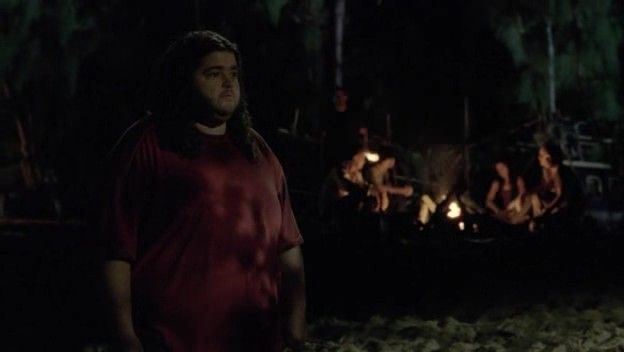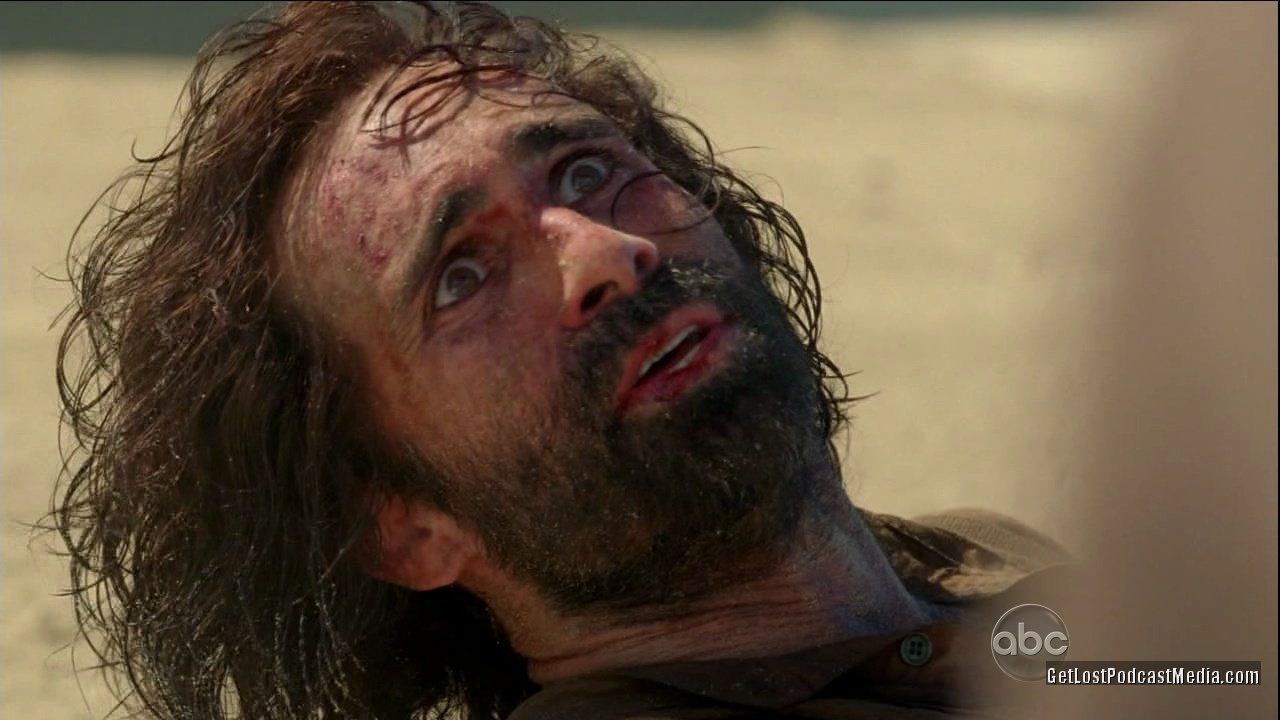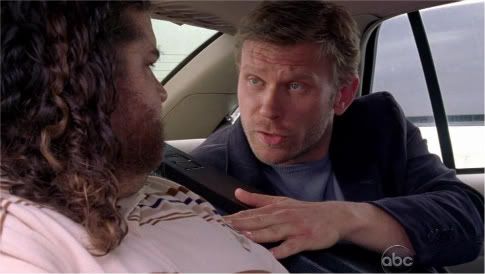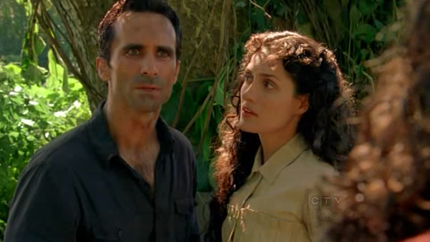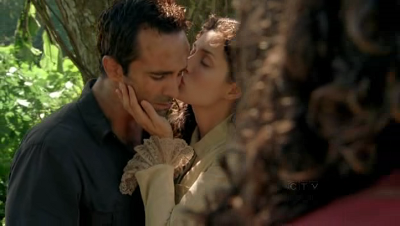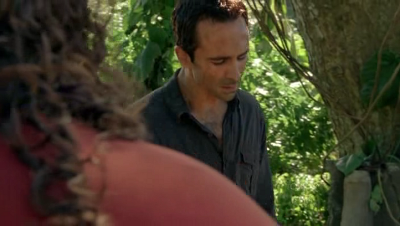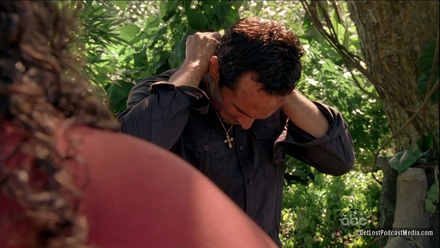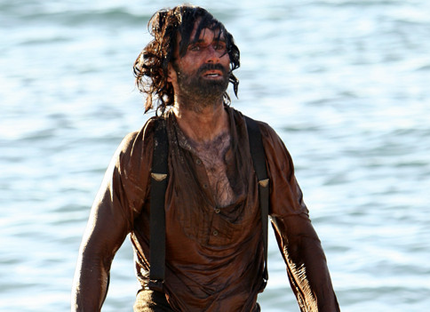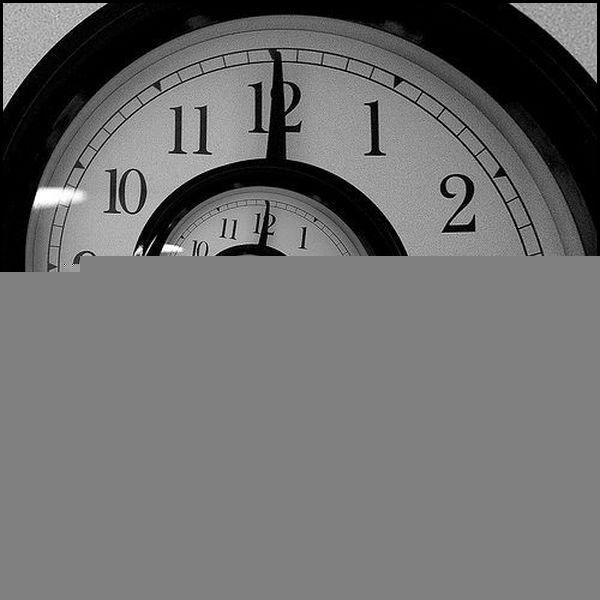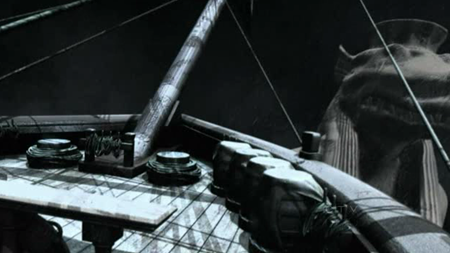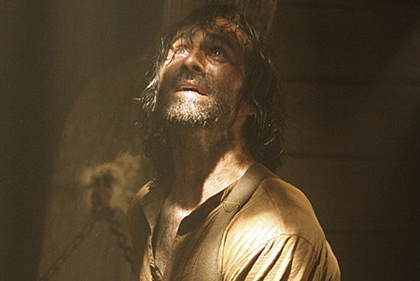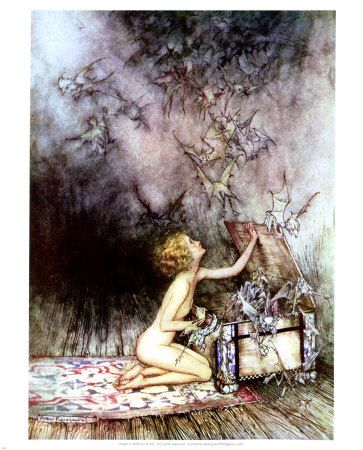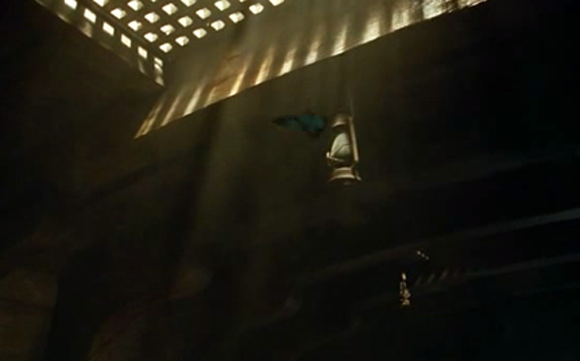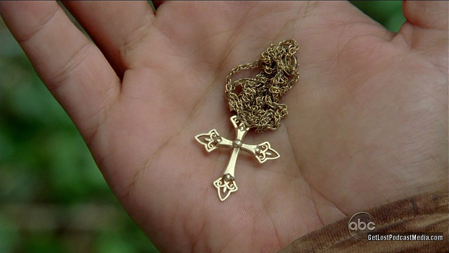I ALONE AM ESCAPED TO TELL THEE
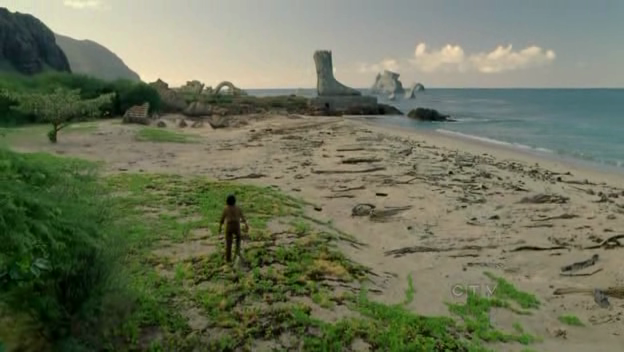

And I, the last, go forth companionless,When all is said and done, when the last white LOST logo falls backwards on the last black screen, it won't be the quality or the quantity of the Answers we'll remember. It will be the story.
And the days darken round me, and the years,
Among new men, strange faces, other minds. - Tennyson, Idylls of the King
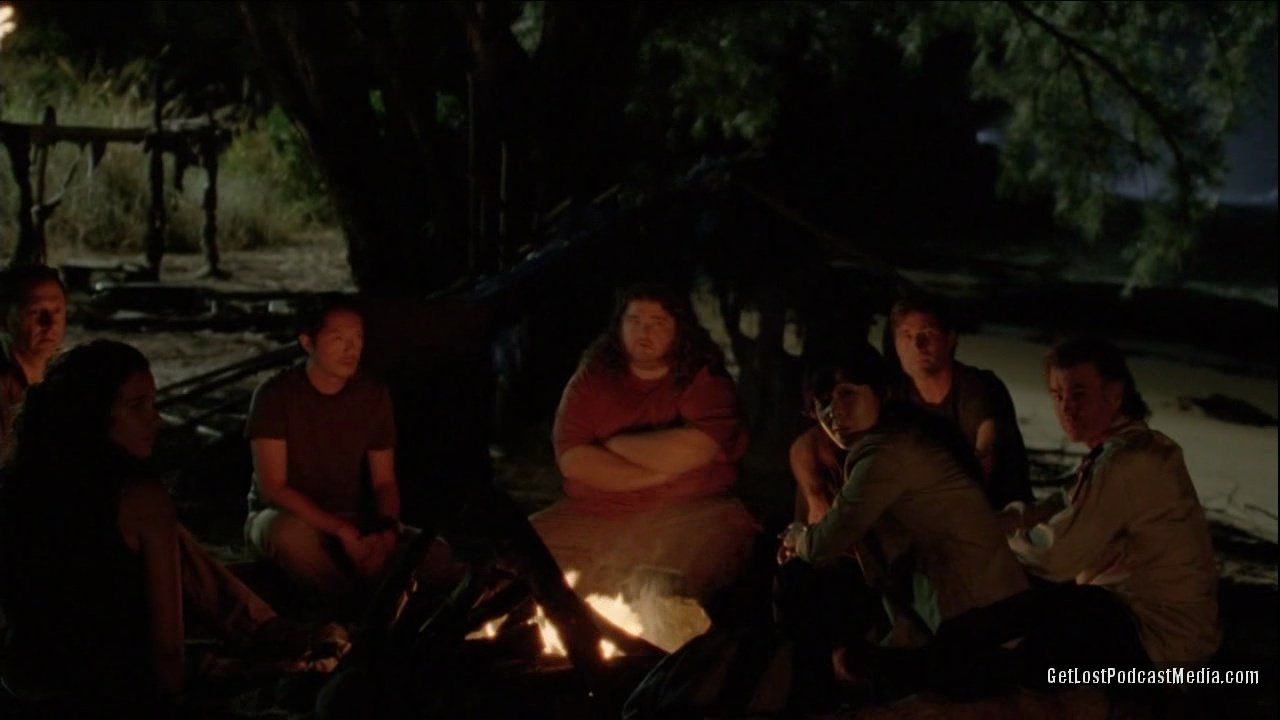
Like kids around the campfire we've been riveted to this great big sprawling yarn, coming back year after year, begging to hear the next chapter. Soon it will all be over. But fortunately a great story - like Poor Richard - is immortal.
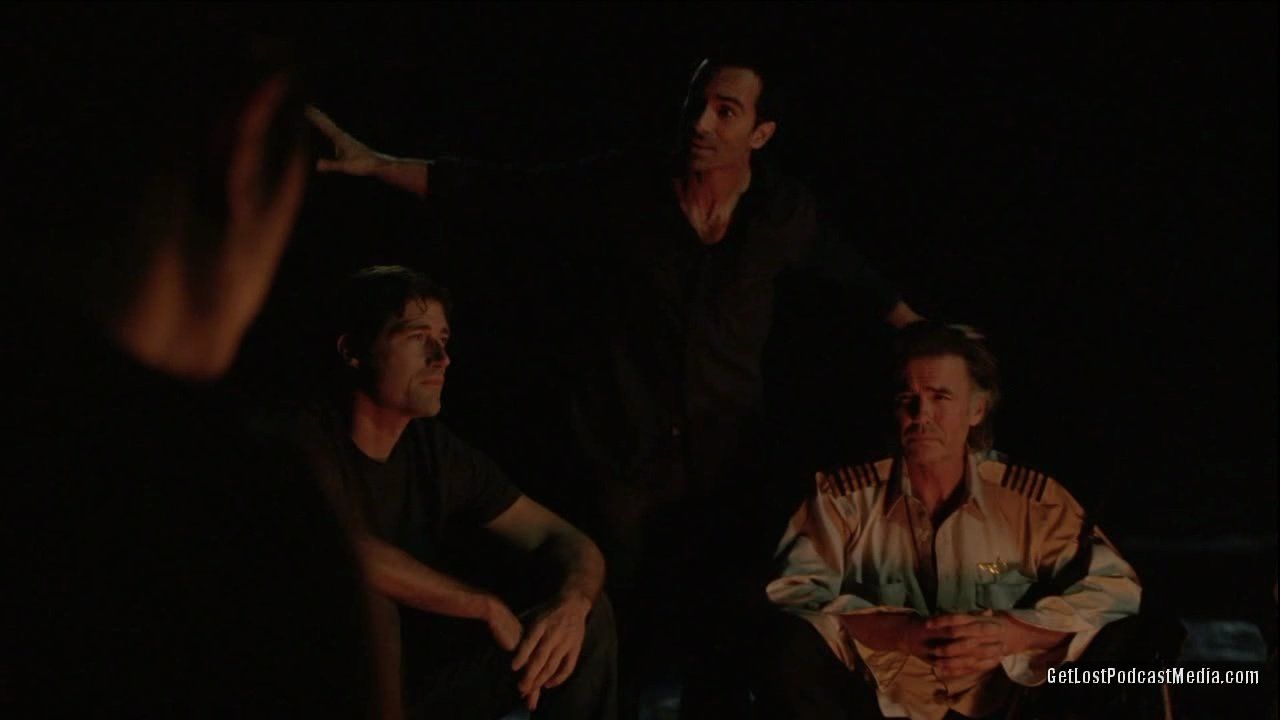
Now that's not to say we didn't get our share of Answers this week. In fact, I'm guessing that the Answer junkies out there in the audience were probably giddy that they could tick off so many boxes on their Answer checklist.

Now that's not to say we didn't get our share of Answers this week. In fact, I'm guessing that the Answer junkies out there in the audience were probably giddy that they could tick off so many boxes on their Answer checklist.
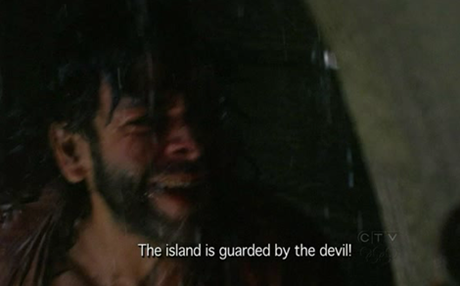
Magnus Hanso was, as many guessed, the last Captain of the Black Rock. Check!
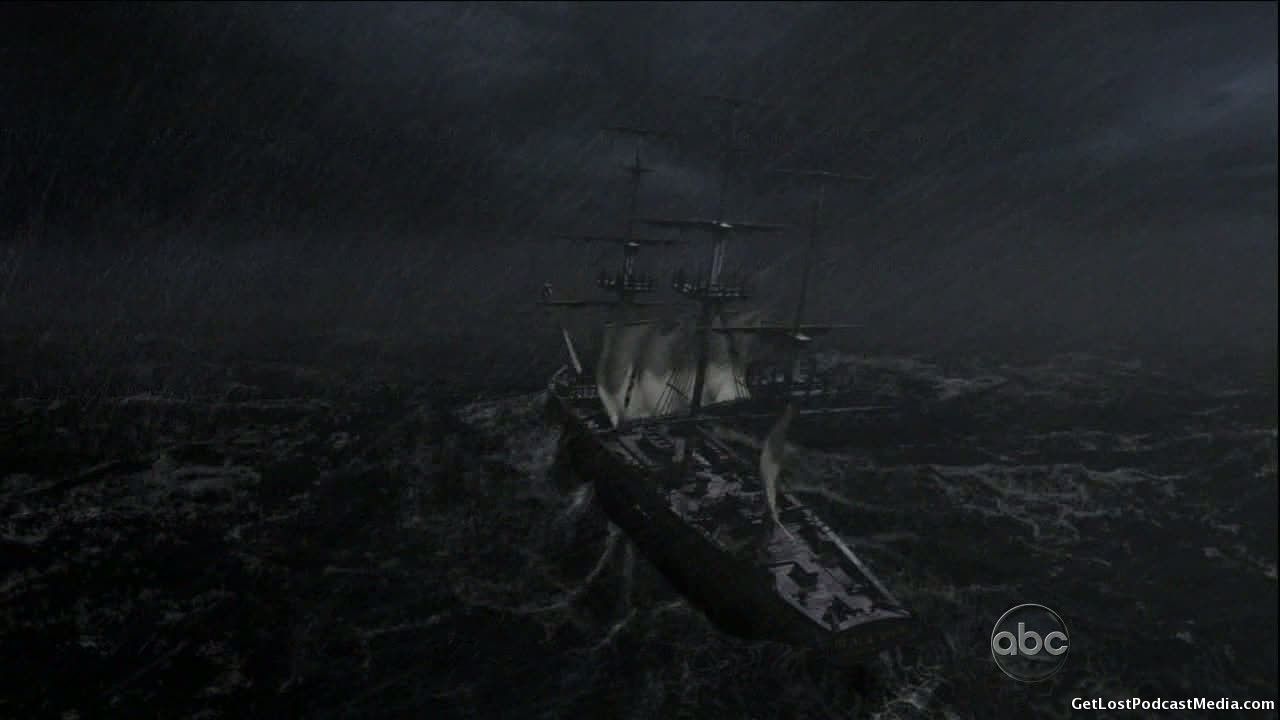
The Black Rock carried convicts to Australia to help to populate that infamous slave colony. Check!
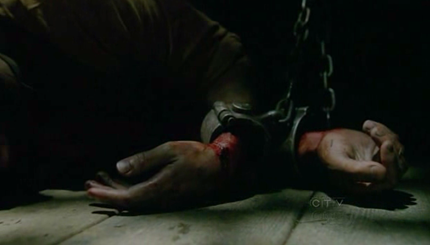
It landed in the middle of the jungle on the top of a giant wave during a terrible storm. Check!

It landed in the middle of the jungle on the top of a giant wave during a terrible storm. Check!
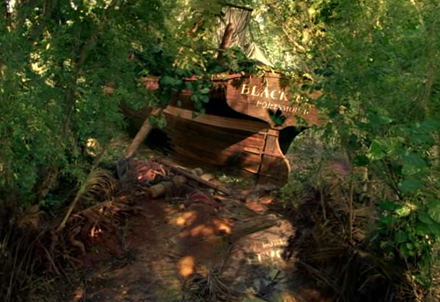
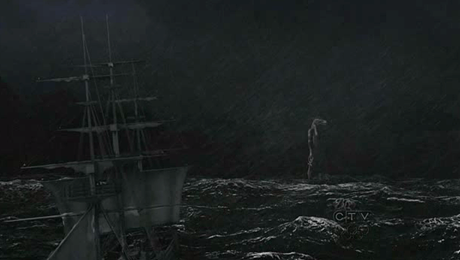
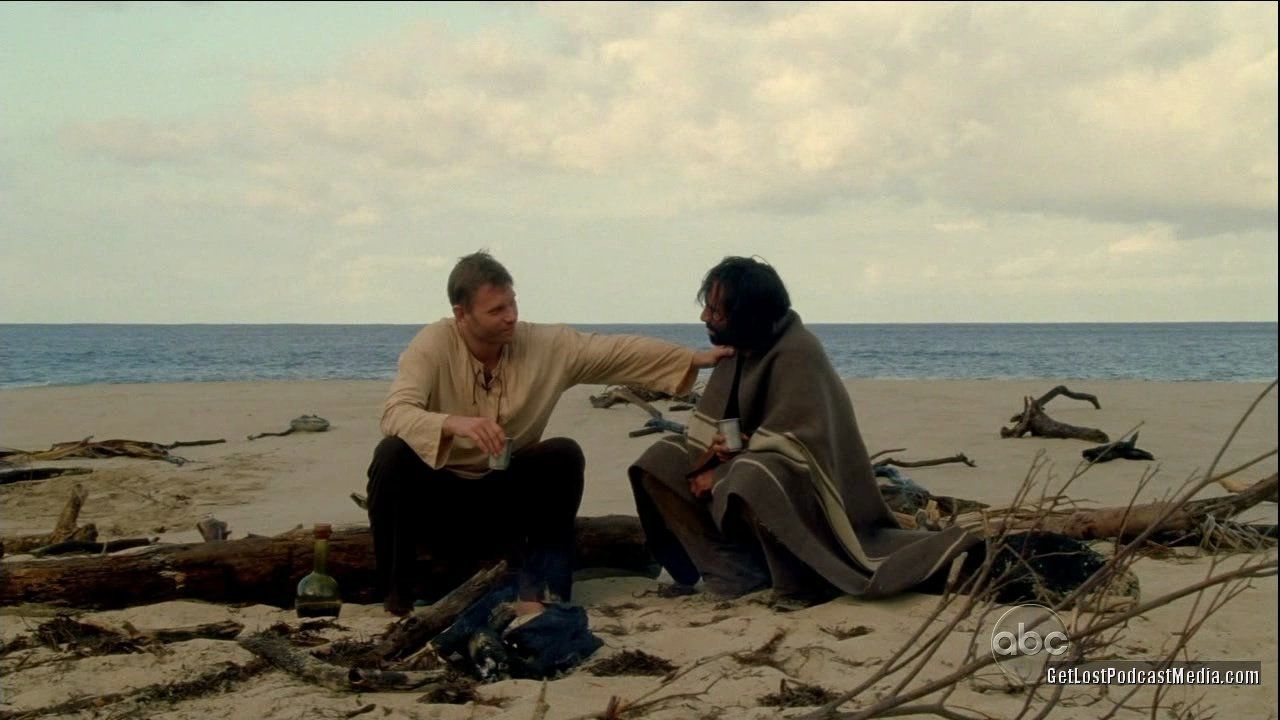
And the mysterious, bewitching, inscrutable Island of infinite possibility, it turns out, is a ... cork.
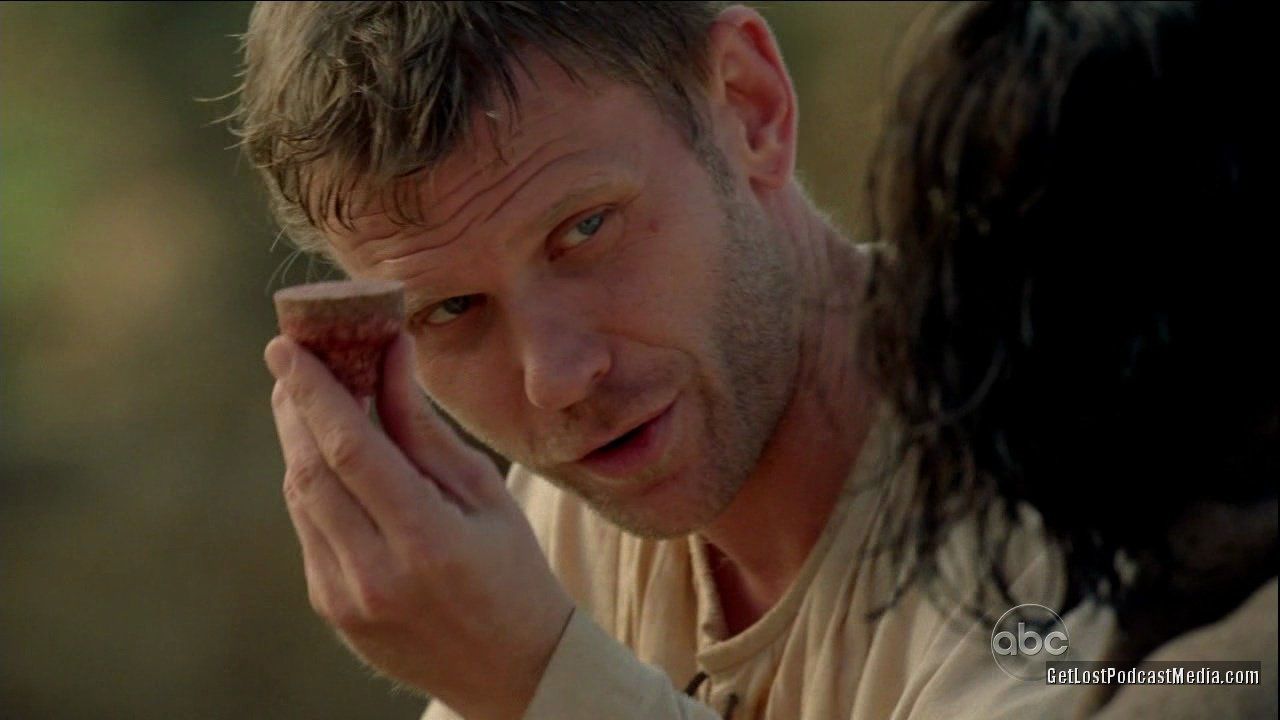
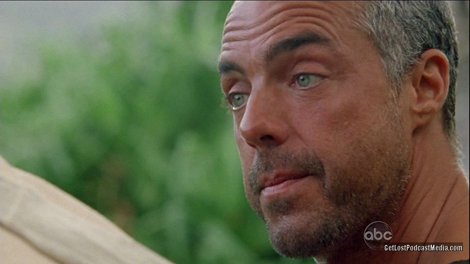

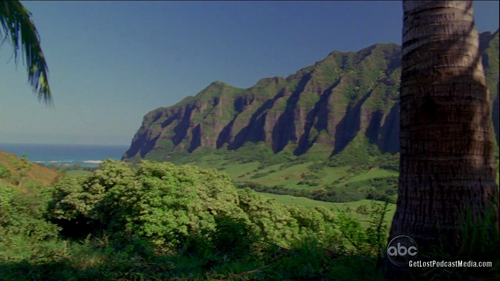
The Richard we've known all these years as an immaculately groomed Island ombudsman started his very long life as a humble stuttering peasant.
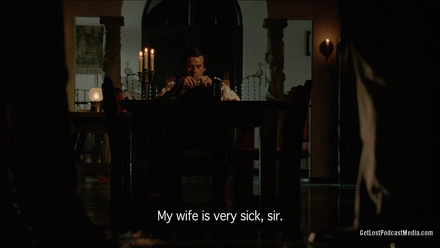
His was a tale of infinite woe. Trying to save his doomed wife, he killed a fat greedy doctor.
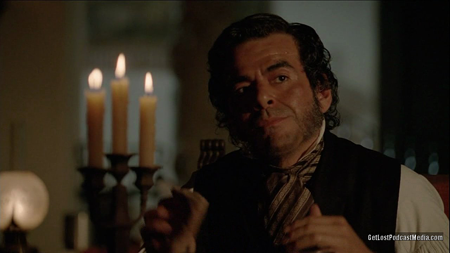
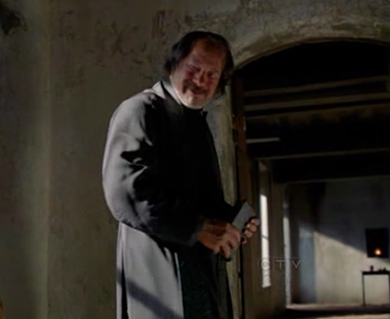
Which left him at the mercy of a mean, greedy lieutenant named Whitfield. Very possibly an ancestor of Widmore. (Whit = wheat= Wid + field = moor = more)
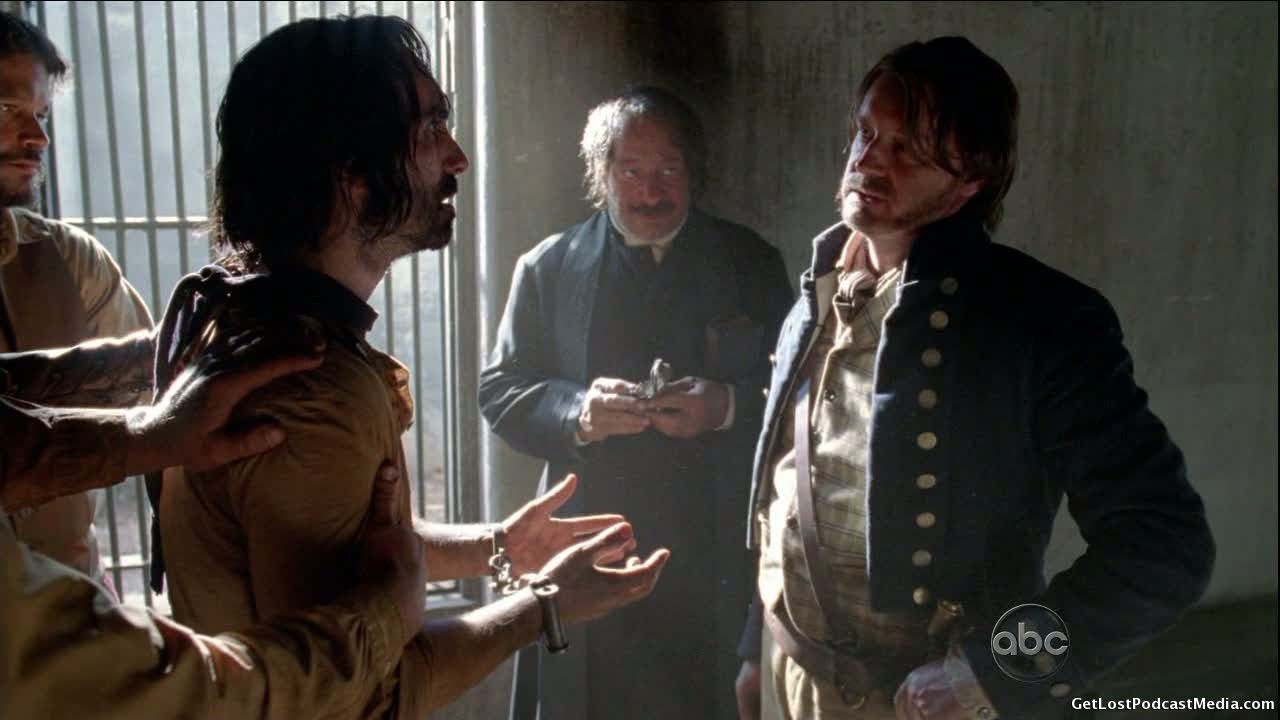
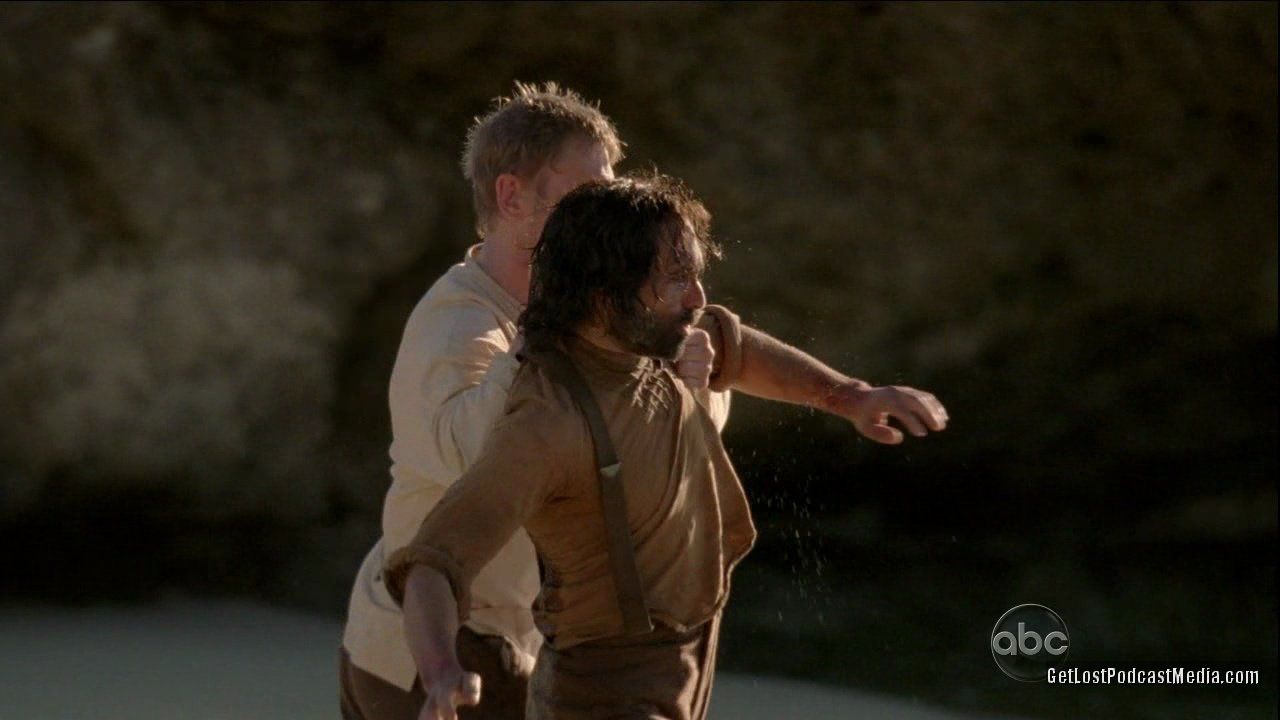
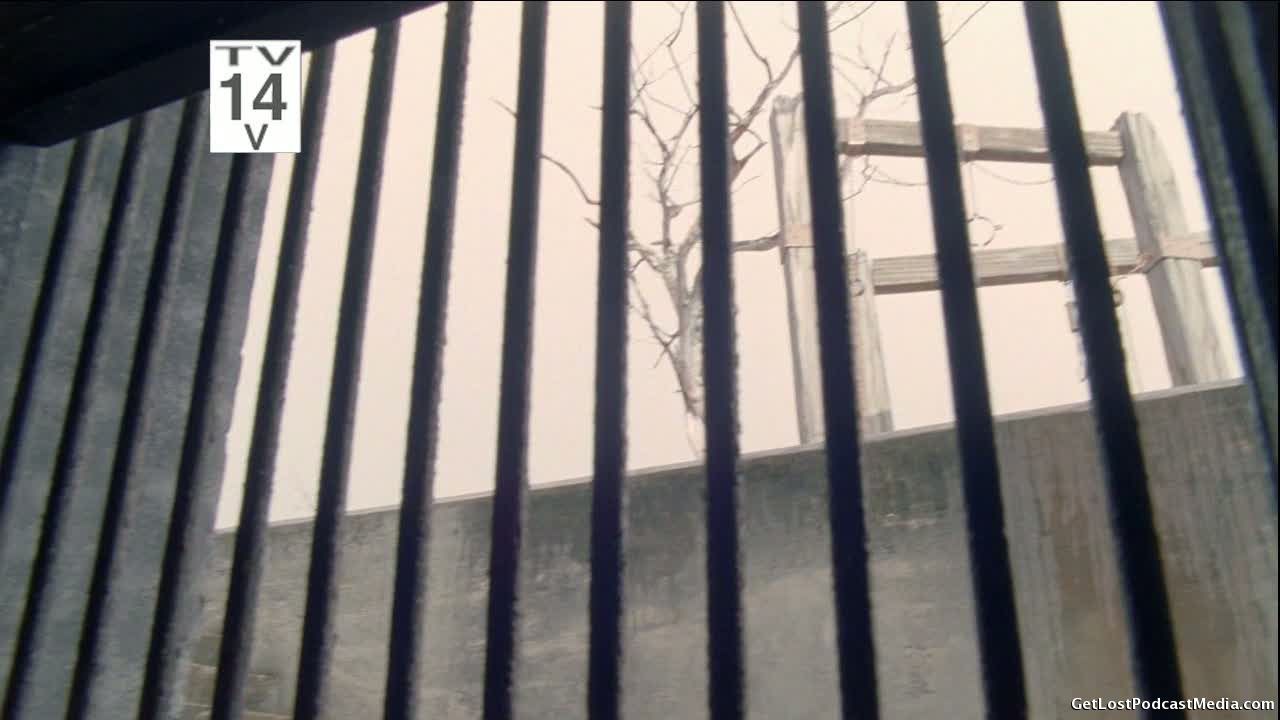
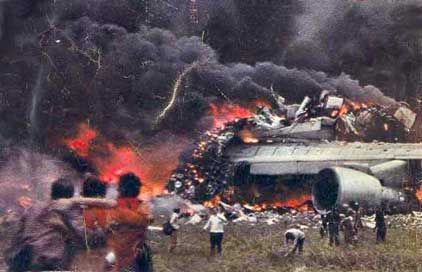
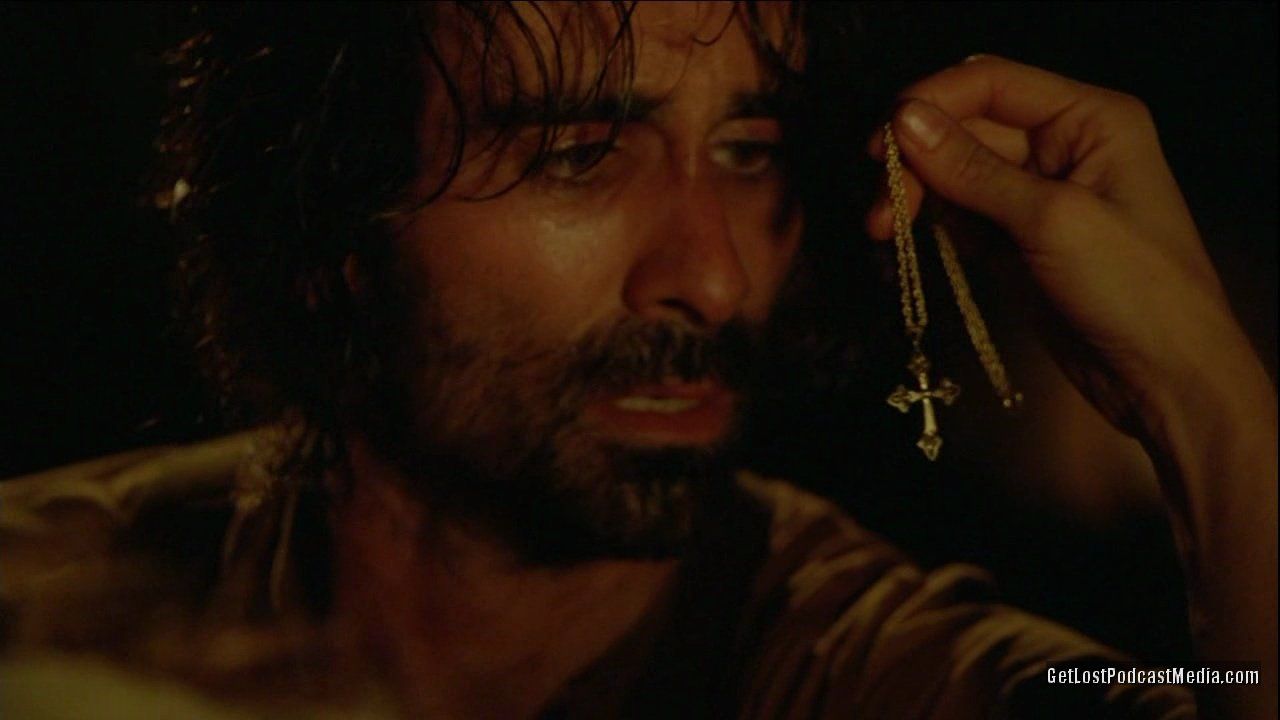
Like so many others in this story, it was a murder that sealed Richard's fate and brought him to the Island. Having accidentally killed the despicable doctor, the hoped for gates of heaven were locked to him.
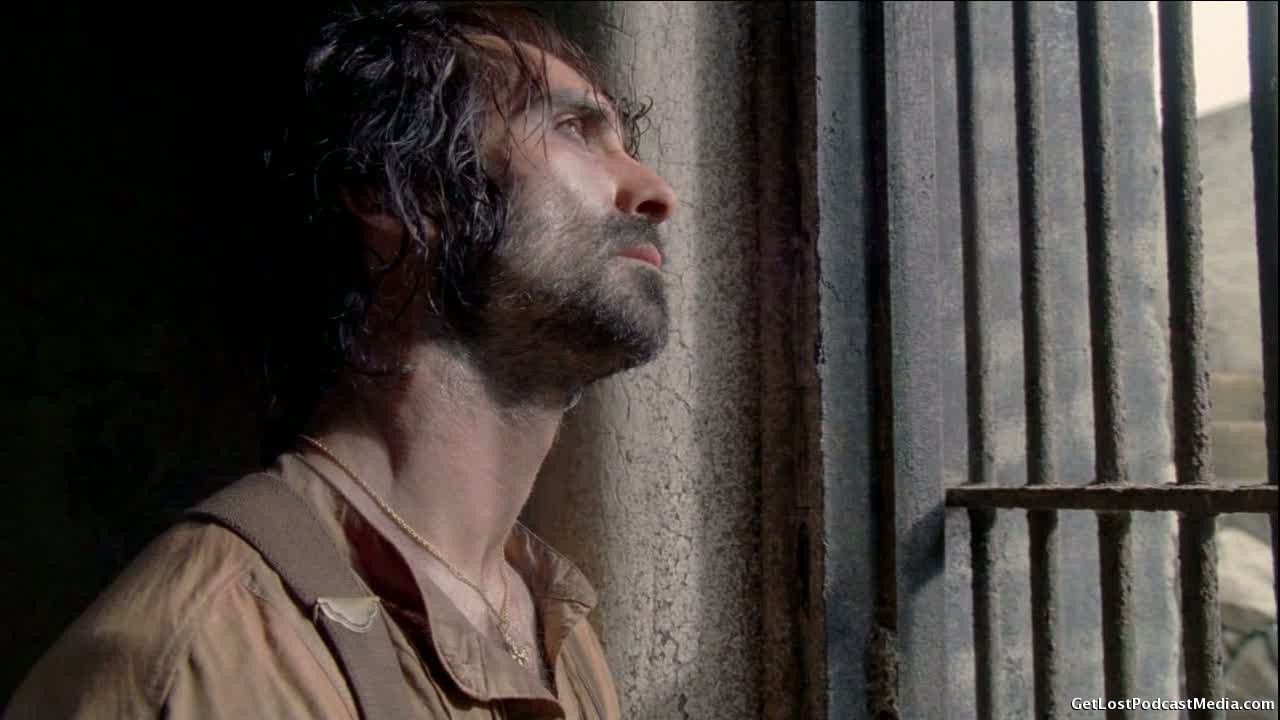
All Richard could see ahead of him was the gaping maw of eternal damnation in a fiery Hell. And for someone of Richard's time and station in life, there was nothing hypothetical or metaphorical about Hell. It was so real to him he could smell the sulphur.
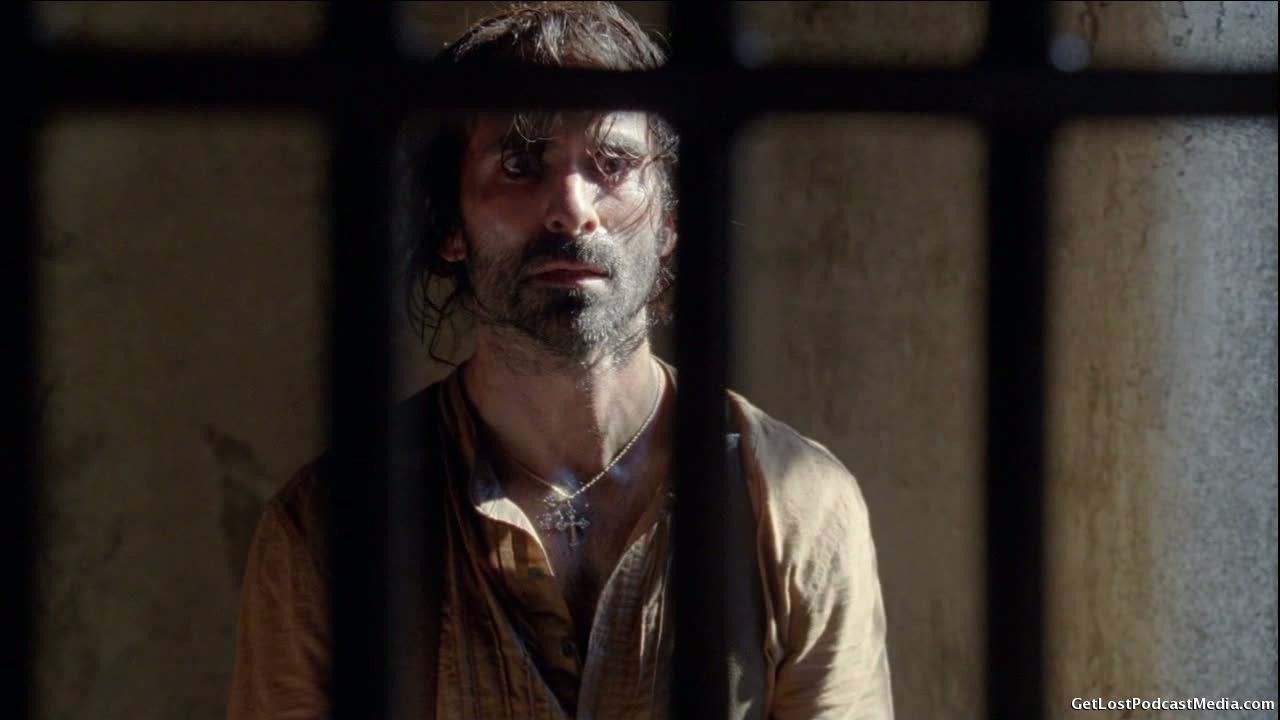
The local padre was a slob who used his Godly connections to run a very lucrative con with destitute beggars like Richard. He doled out absolution like it was his own private possession and enriched himself selling criminals to slavetraders. Richard was the perfect mark for this conman.
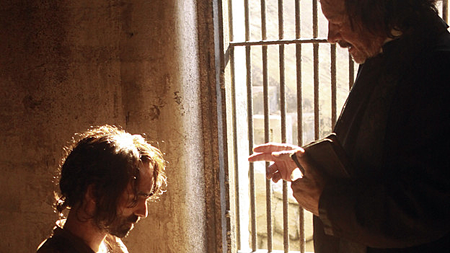
He was above all else, a Man of Faith. Denied absolution, he wanted only the chance to accrue enough penance to save his soul from eternal damnation.

All Richard could see ahead of him was the gaping maw of eternal damnation in a fiery Hell. And for someone of Richard's time and station in life, there was nothing hypothetical or metaphorical about Hell. It was so real to him he could smell the sulphur.


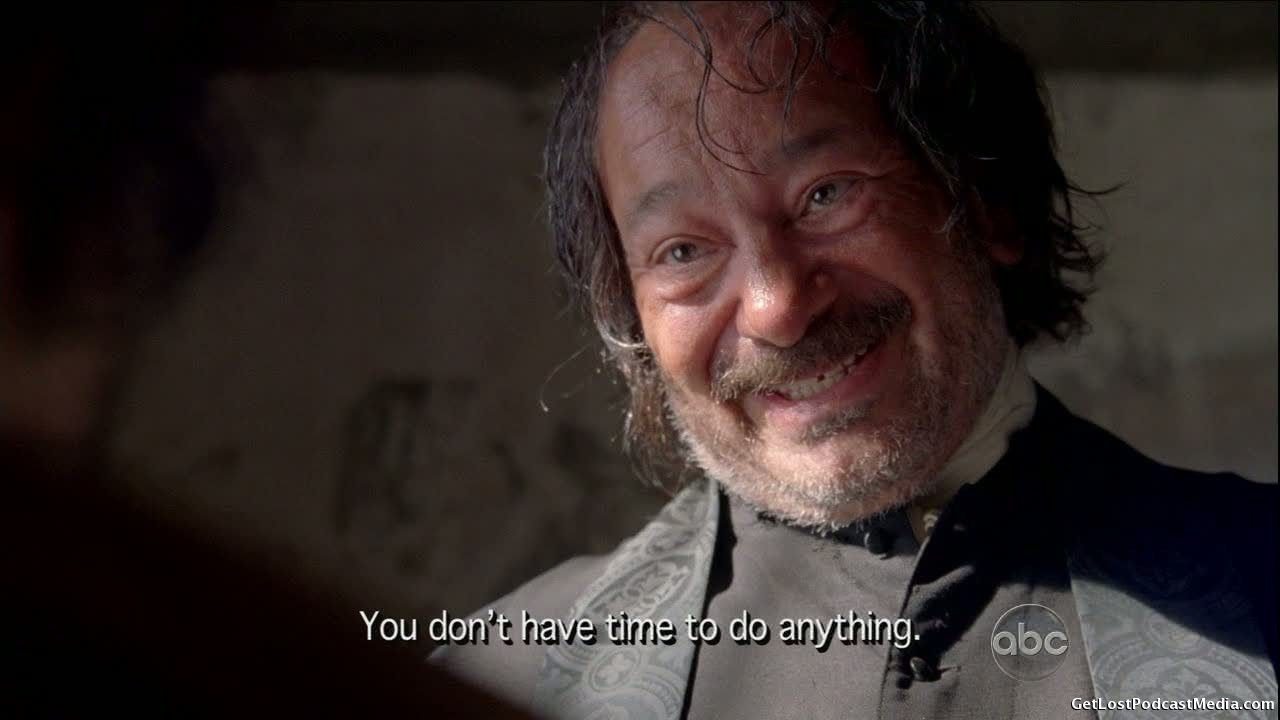
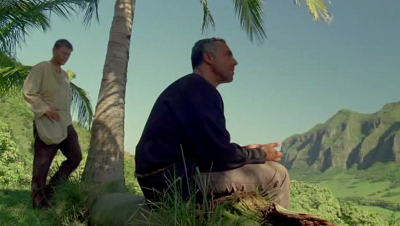
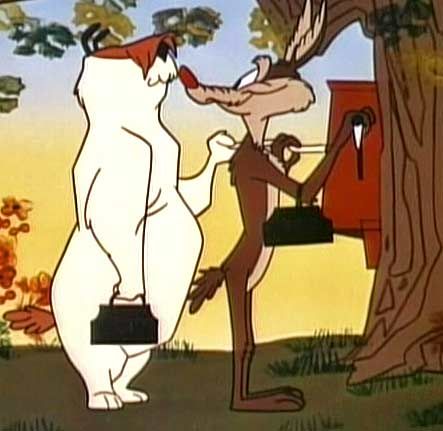
They're like Sheepdog Sam and Ralph Wolf, who clock in every morning to battle one another to the death, and then clock out every night to share a cocktail.
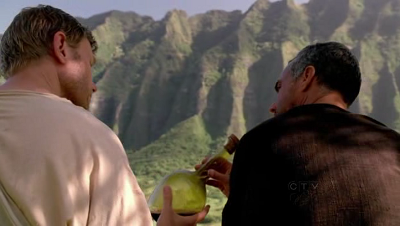
It seems that the Flim Flam Twins are running contiguous cons. Jacob offers tabula rasa, a clean slate, a new life unstained by past sins.
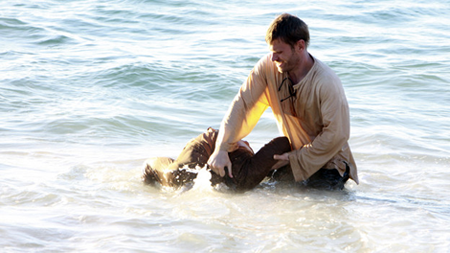
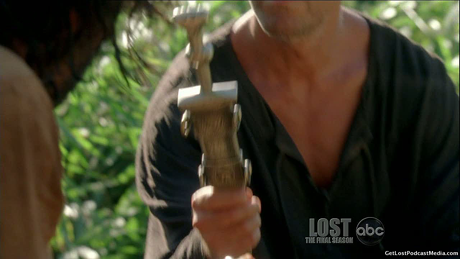
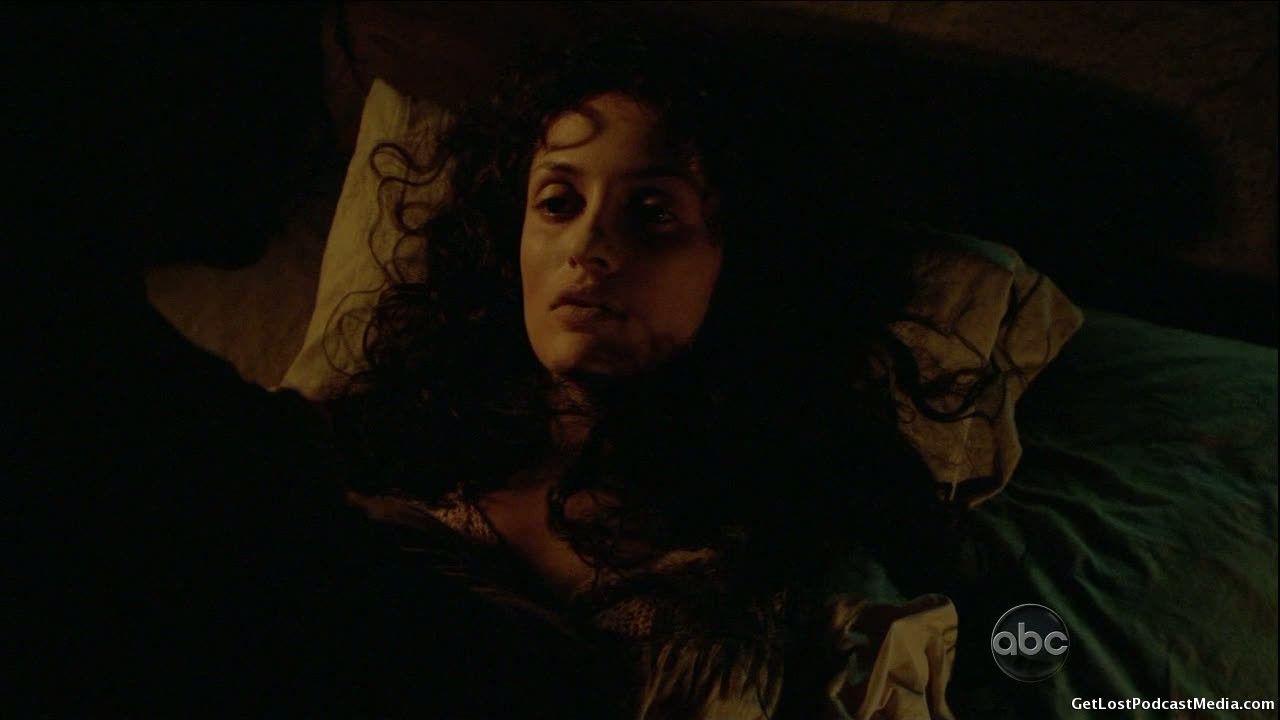
His brother's extraordinary powers are different. His magic is that he can take on any form he chooses. He can turn himself into whoever you want him to be ... or whoever he wants you to see. I think most of us have surmised that the manifestations of those whose bodies lie on the Island were The Smoke Monster taking their form.
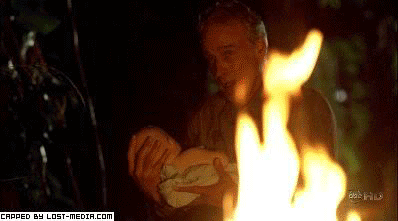
But it's conceivable that The Monster has always been more flexible than that. How many of the other curious things we've seen were ploys from his bag of tricks?
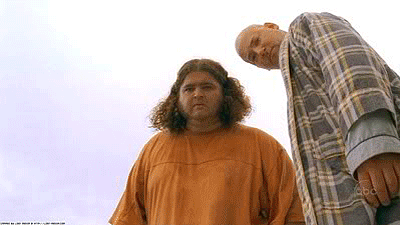
The Monster says Jacob is the devil. Jacob says The Monster is lying. The Monster says Jacob is lying when he says The Monster is lying. Last week, the NotLocke Monster told us that his mother had been insane. The more we learn about her kids, the more that starts to make sense.

But it's conceivable that The Monster has always been more flexible than that. How many of the other curious things we've seen were ploys from his bag of tricks?

The Monster says Jacob is the devil. Jacob says The Monster is lying. The Monster says Jacob is lying when he says The Monster is lying. Last week, the NotLocke Monster told us that his mother had been insane. The more we learn about her kids, the more that starts to make sense.
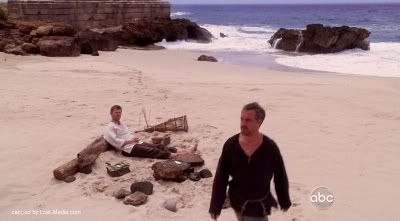

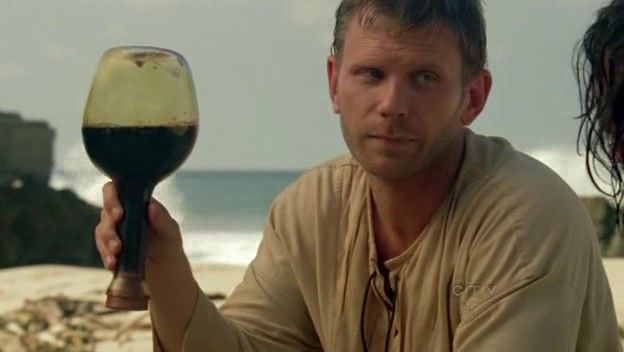
I'm not sure what Jacob thinks he's actually accomplishing. It's not as if he's got all the evil in the world bottled up on LOST island, no matter how proud he is of himself. The world that Richard came from was already full of greedy doctors and wicked priests and slavery and sickness and violent, painful, terrifying death. How much worse is it going to be if Jacob takes the cork out of the bottle? Are we talking the Hellmouth here?
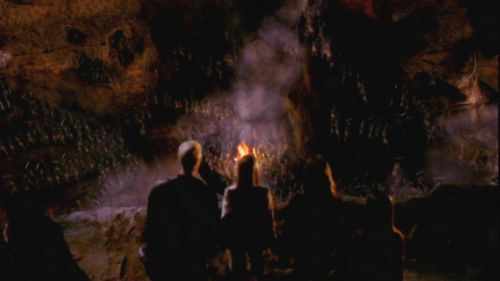
Is No-Name the Master?
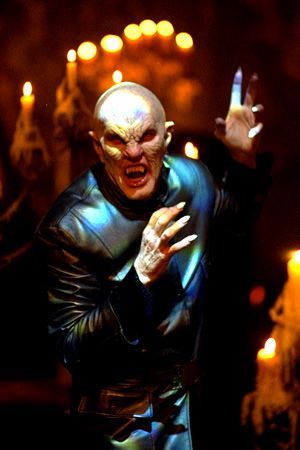
It's worth noting that the Hellmouth did not spring forth fully formed from Joss Whedon's imagination. People in the Middle Ages believed in a howling chasm below the Earth squirming with fiends, gargoyles and demons.
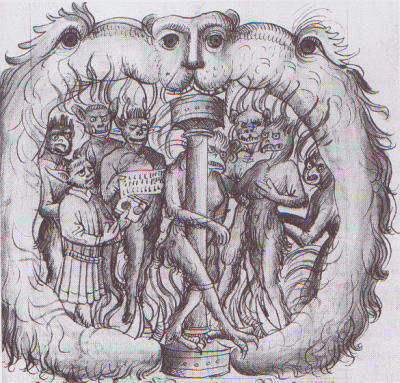
The concept of a Hellmouth corresponds to the pocket of supernatural energy that seems to be trapped within LOST Island. And there is still a lot of credence for that idea.
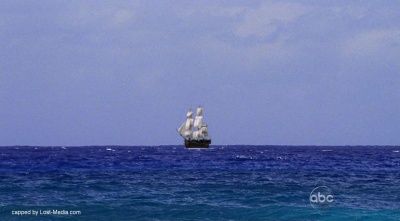
I'm in the camp that believes, not that it matters, that the ship we'd seen approaching the beach in The Incident was indeed the Black Rock.
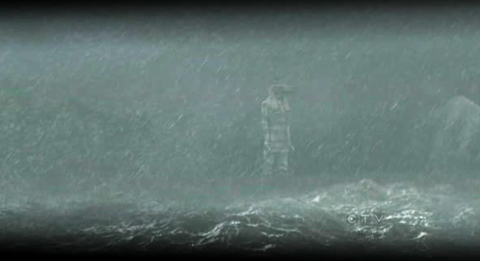
As it approached the Island, it became trapped in a violent electrical rainstorm, much like the one Frank had to steer Desmond through in The Constant. Passage to or from the Island seems to involve navigating some kind of turbulent EMF-infused moat.

For those still looking for science fiction in this fairy tale, there is plenty of evidence left over for a theory that the Island represents a pocket of super forces, created by an electromagnetic anomaly of ginormous proportions. But that wasn't what this episode was about.
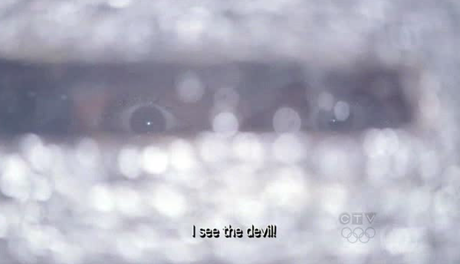
As a 19th century Spanish Catholic, the Hell that Richard feared was a place of merciless, incessant torment, a place that made perfect sense within a universe where insignificant humans accepted their plight as toys to a capricious God. A God who could punish men for failing to avoid the Evil that he himself had forced into their path.

Is No-Name the Master?

It's worth noting that the Hellmouth did not spring forth fully formed from Joss Whedon's imagination. People in the Middle Ages believed in a howling chasm below the Earth squirming with fiends, gargoyles and demons.

The concept of a Hellmouth corresponds to the pocket of supernatural energy that seems to be trapped within LOST Island. And there is still a lot of credence for that idea.

I'm in the camp that believes, not that it matters, that the ship we'd seen approaching the beach in The Incident was indeed the Black Rock.

As it approached the Island, it became trapped in a violent electrical rainstorm, much like the one Frank had to steer Desmond through in The Constant. Passage to or from the Island seems to involve navigating some kind of turbulent EMF-infused moat.

For those still looking for science fiction in this fairy tale, there is plenty of evidence left over for a theory that the Island represents a pocket of super forces, created by an electromagnetic anomaly of ginormous proportions. But that wasn't what this episode was about.

As a 19th century Spanish Catholic, the Hell that Richard feared was a place of merciless, incessant torment, a place that made perfect sense within a universe where insignificant humans accepted their plight as toys to a capricious God. A God who could punish men for failing to avoid the Evil that he himself had forced into their path.
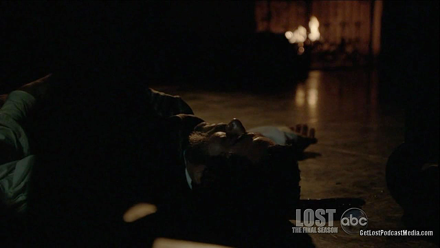
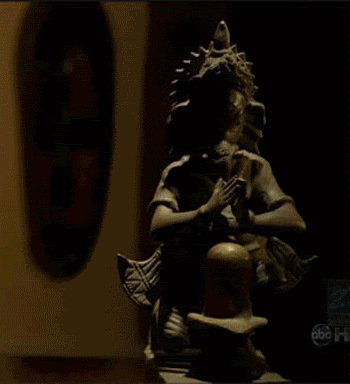
LOST has winked or nodded at almost every religion and spiritual belief system known to man. I am not ready yet to accept that they've settled on something this simplistic as their final metaphysical metaphor. I don't consider myself all that demanding when it comes to LOST's endgame, but I might just have an actual cow if LOST turns out, after all this, to be about nothing more than:

When Richard finally decides to align himself with Jacob, he brings a message back to The Monster.
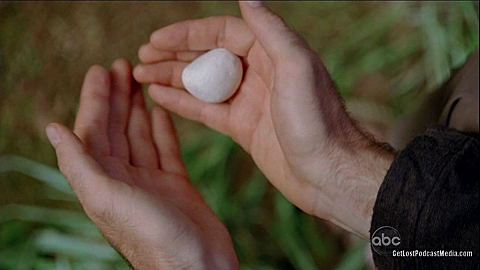
The white rock that he hands to The Monster is the same rock we see NotLocke toss into the ocean in The Substitute, calling it an "inside joke". I think the joke is on us, or on any of us who are being tricked by this black-white sleight of hand.
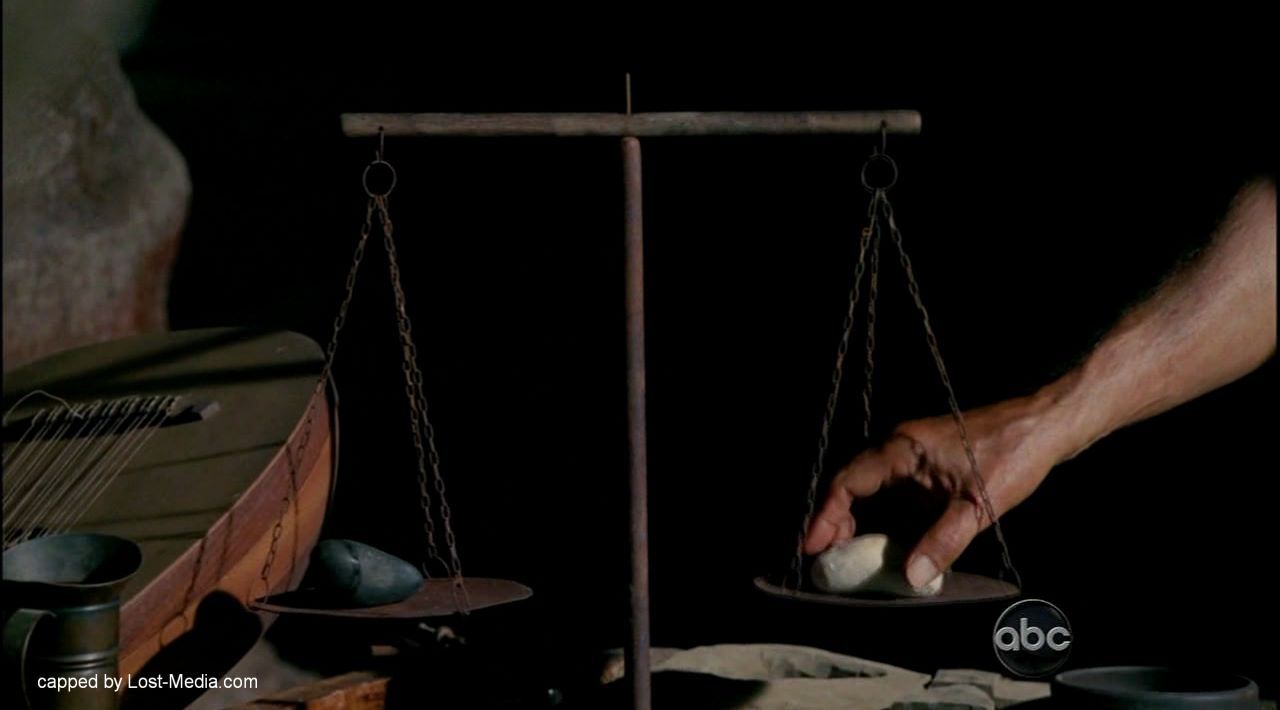
I have no problem describing The Monster as Evil. He's done enough coldblooded killing to qualify hundreds of time over. But there's no way I'm ever going to be able to see a way clear to indentifying Jacob as Good.

I have no problem describing The Monster as Evil. He's done enough coldblooded killing to qualify hundreds of time over. But there's no way I'm ever going to be able to see a way clear to indentifying Jacob as Good.
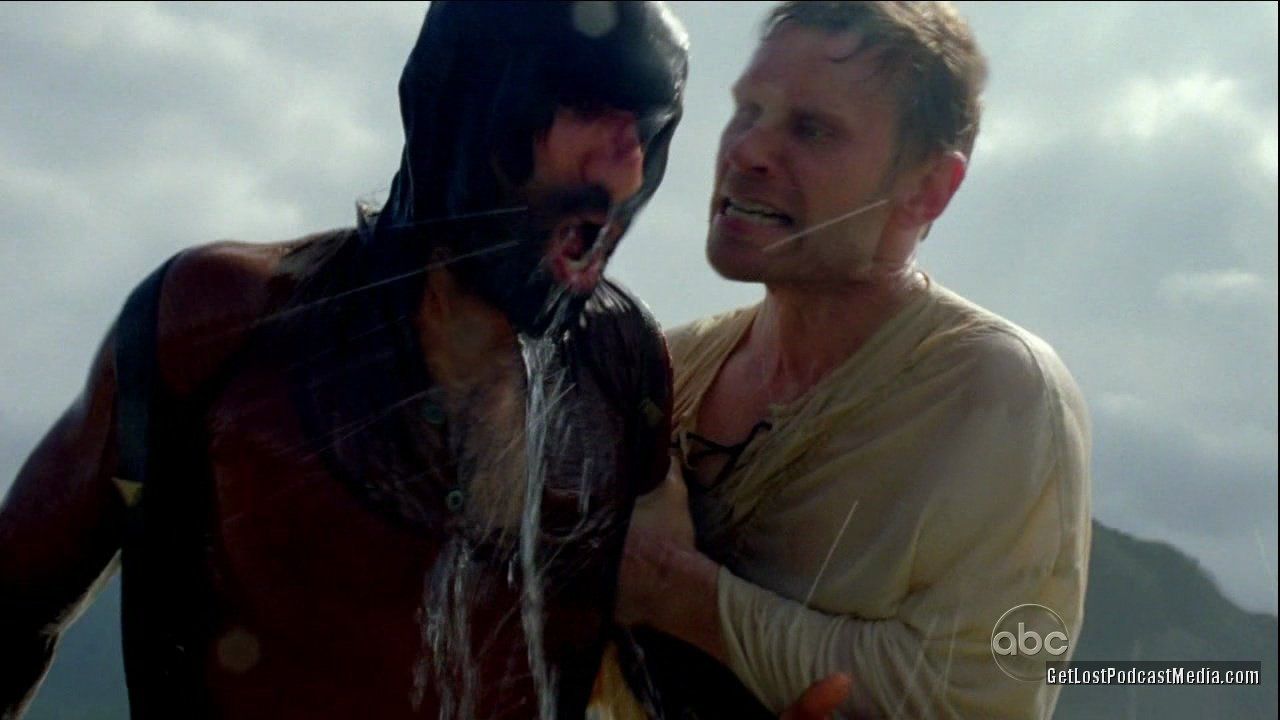
It's not just because he's a smug, sanctimonious dick. It's not just that he's the one who is free to go "walking up and down in the world", like Satan does in the Book of Job. He tells Richard that no one gets into his temple unless invited by him. He says arrogantly that the is the one who brought the ship to the Island, that he continues to bring people to the Island - in order to prove The Monster wrong.
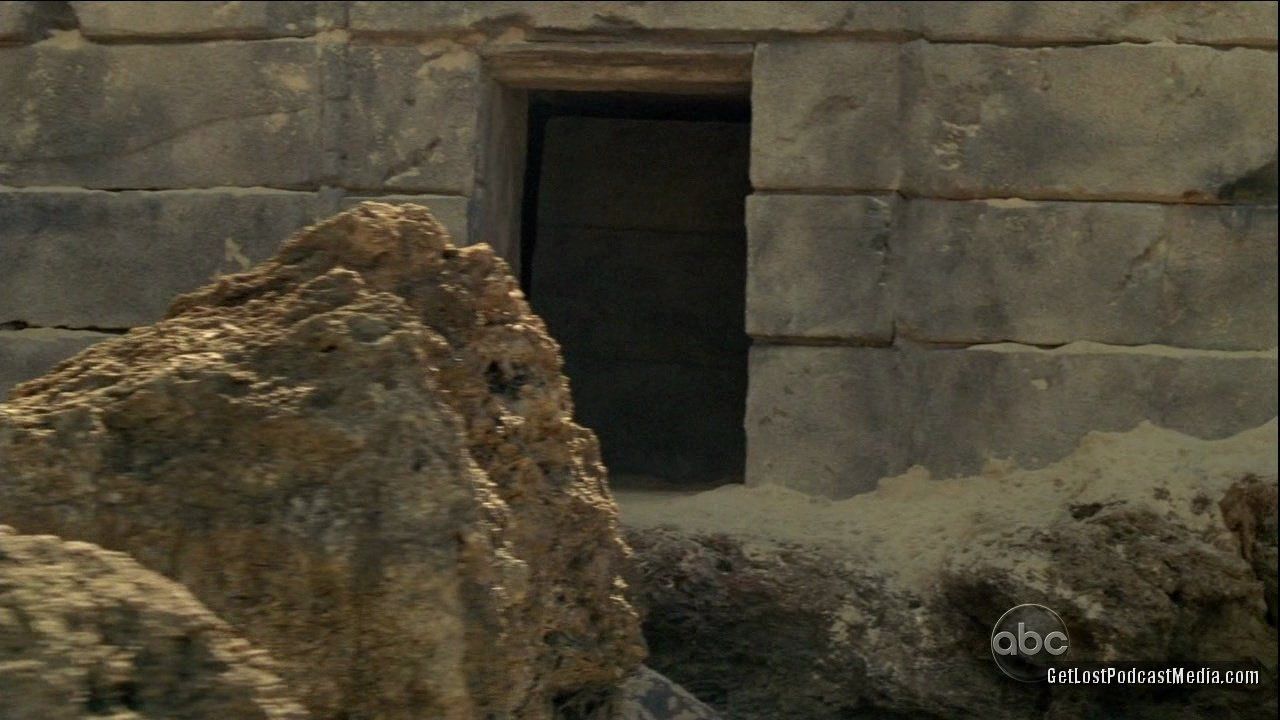
Does that mean he brought everyone who came to the Island? Even the Dharma Initiative?

Does that mean he brought everyone who came to the Island? Even the Dharma Initiative?
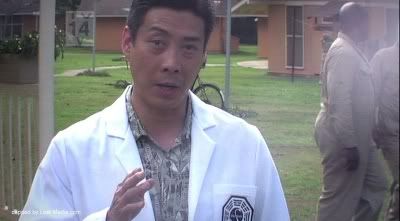
I'd like to have seen that negotiation process. From what we've witnessed, Jacob doesn't exactly invite people to the Island. He more or less connives and manipulates or, when necessary, has his playing pieces arrested in order to get them to the Island.
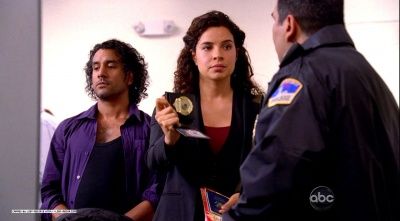
Everyone on the Island, it seems, is there as a function of Jacob's imperial Will. What gives him the right to control the lives of people this way? He doesn't say, doesn't seem to care about that. He needs to bring people to the Island so he can use them as pawns in the blood feud he's got going with The Monster. He seems to think he's giving them a great gift when he washes their past clean, but he doesn't address the fact that they're getting this second chance while trapped on an Island of Mystery with a bloodthirsty Smoke Monster that eats most of them for lunch and then spits out the bones.
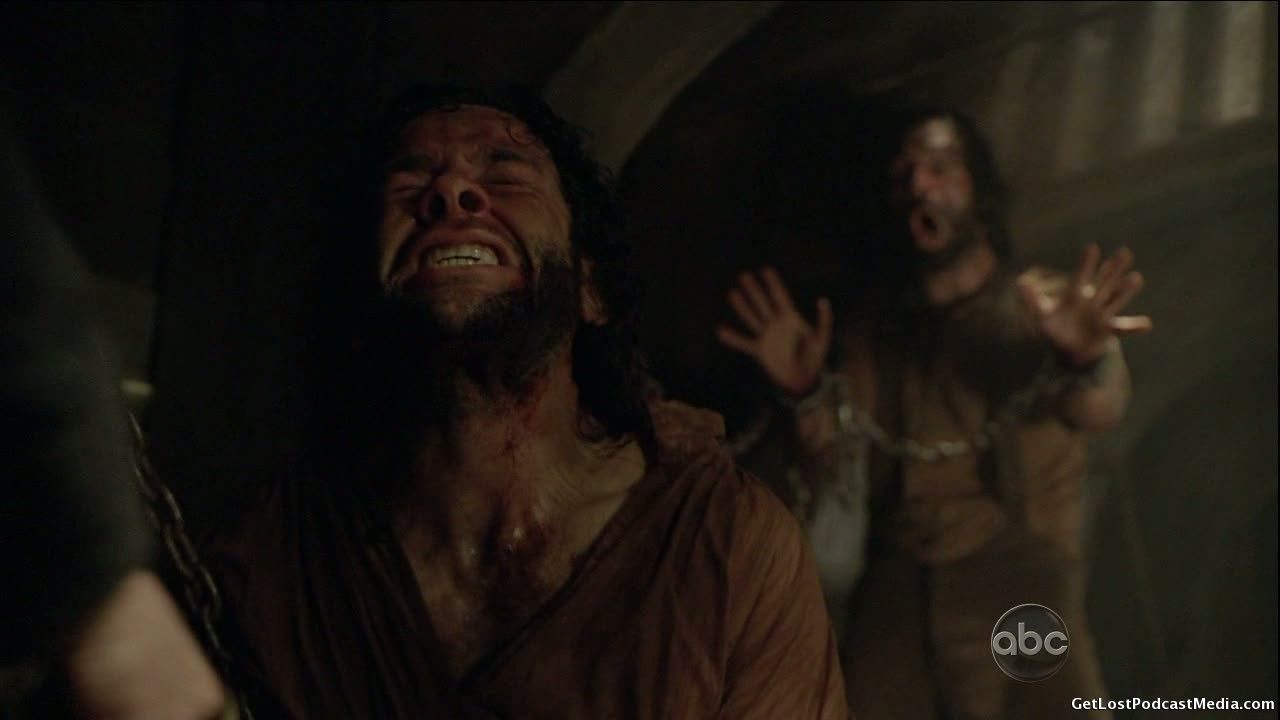
Those who don't get killed by The Monster more often than not suffer and die some other way. But Jacob takes no responsibility for what happens to the pawns he throws into the Thunderdome. He seems to think he's hot shit because he doesn't "intervene" ... you know, after he intervened all these poor suckers onto the Island in the first place. Jacob grants himself a clean conscience, but does that mean we have to give him a free pass? In the end, who is more responsible for all the suffering we've seen on LOST Island? The Monster that terrifies and destroys, or Jacob who feeds him fresh victims every chance he possibly can?
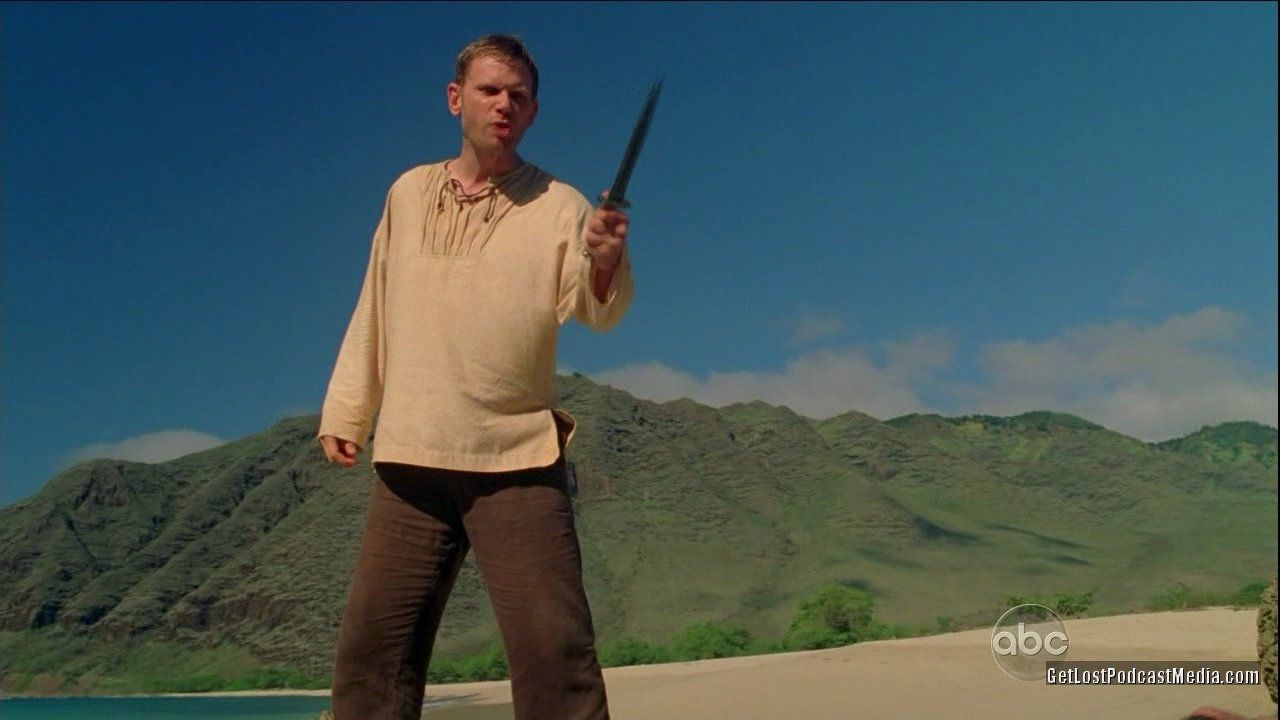
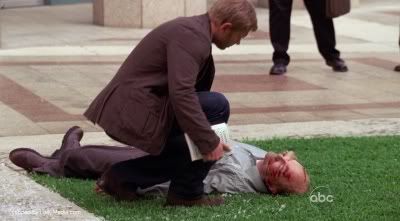
Speaking of magic touches, I don't believe we have any explanation for the black gloves Jacob wore so he wouldn't have to touch Ilana. Does Ilana have cooties? Why was she bandaged? And what meaning does it have that Mr. Whitey was wearing black when he travelled to her bleak Russian hospital bed to ask for her help?
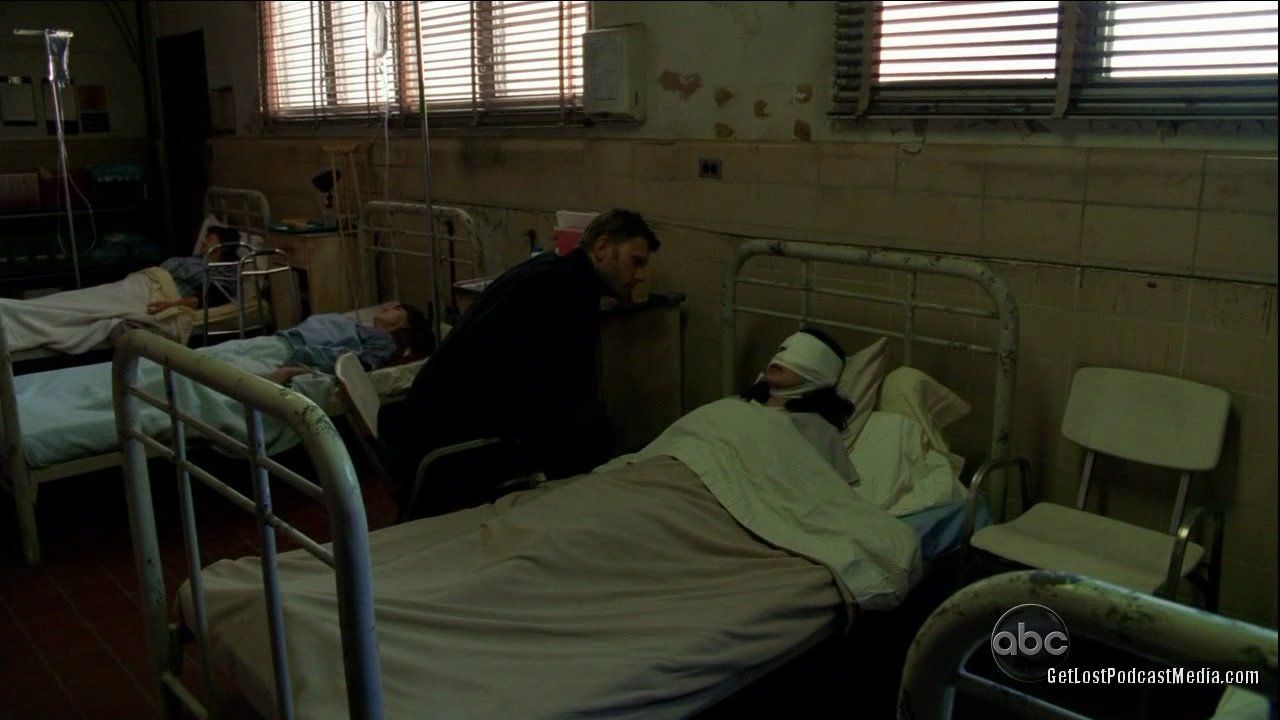
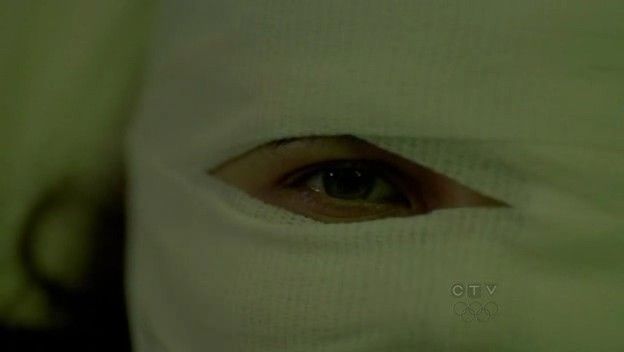
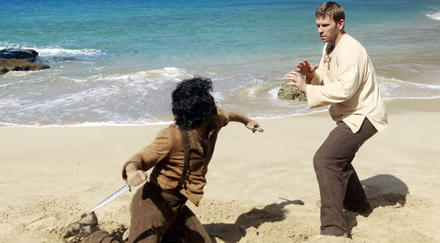
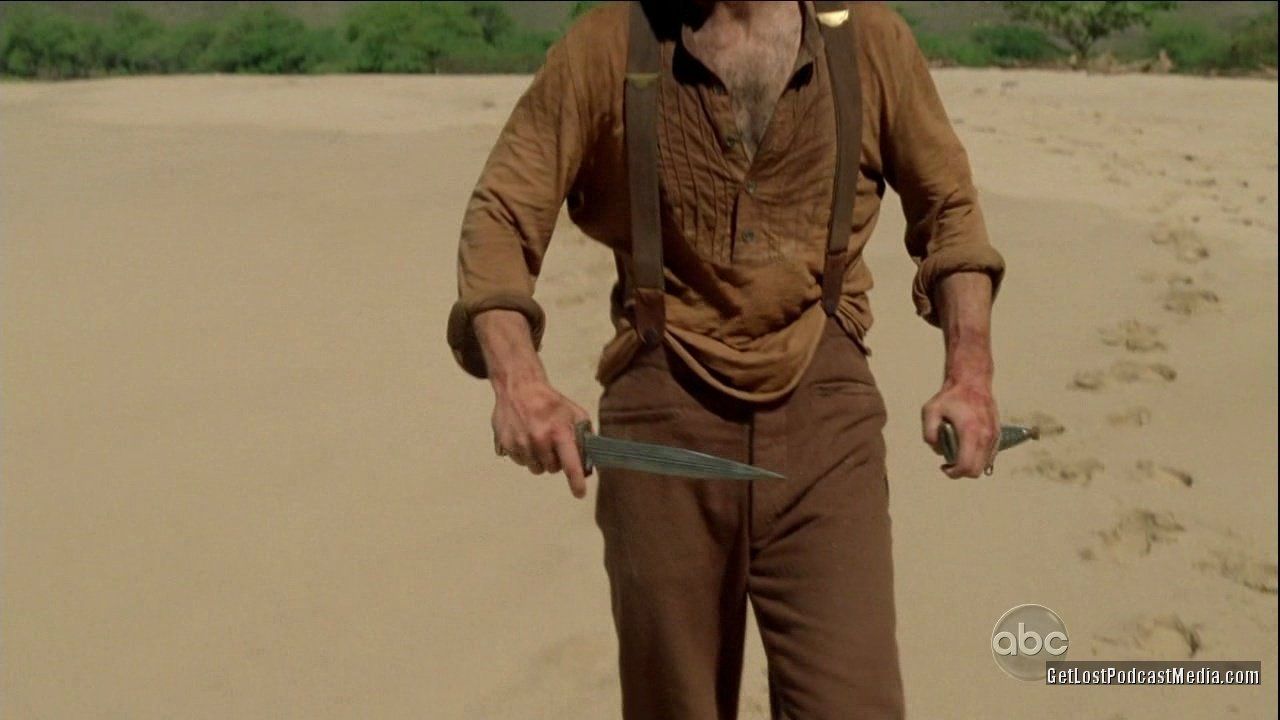
Richard was given the ceremonial dagger to kill Jacob, the same pugio that Dogen had given to Sayid.
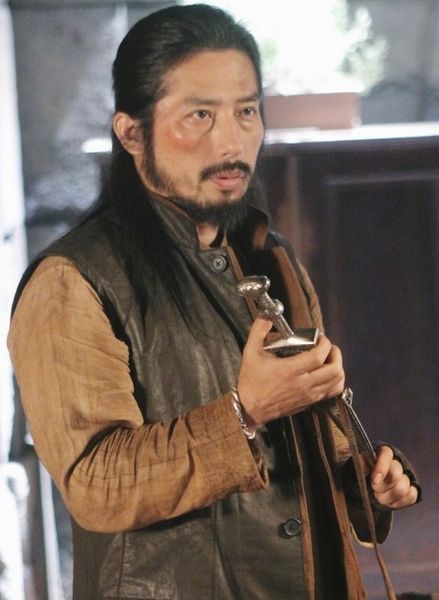
It came with the same instructions - to use it before the victim had a chance to speak - and in both cases it failed to hit its mark, although for different reasons.

It came with the same instructions - to use it before the victim had a chance to speak - and in both cases it failed to hit its mark, although for different reasons.
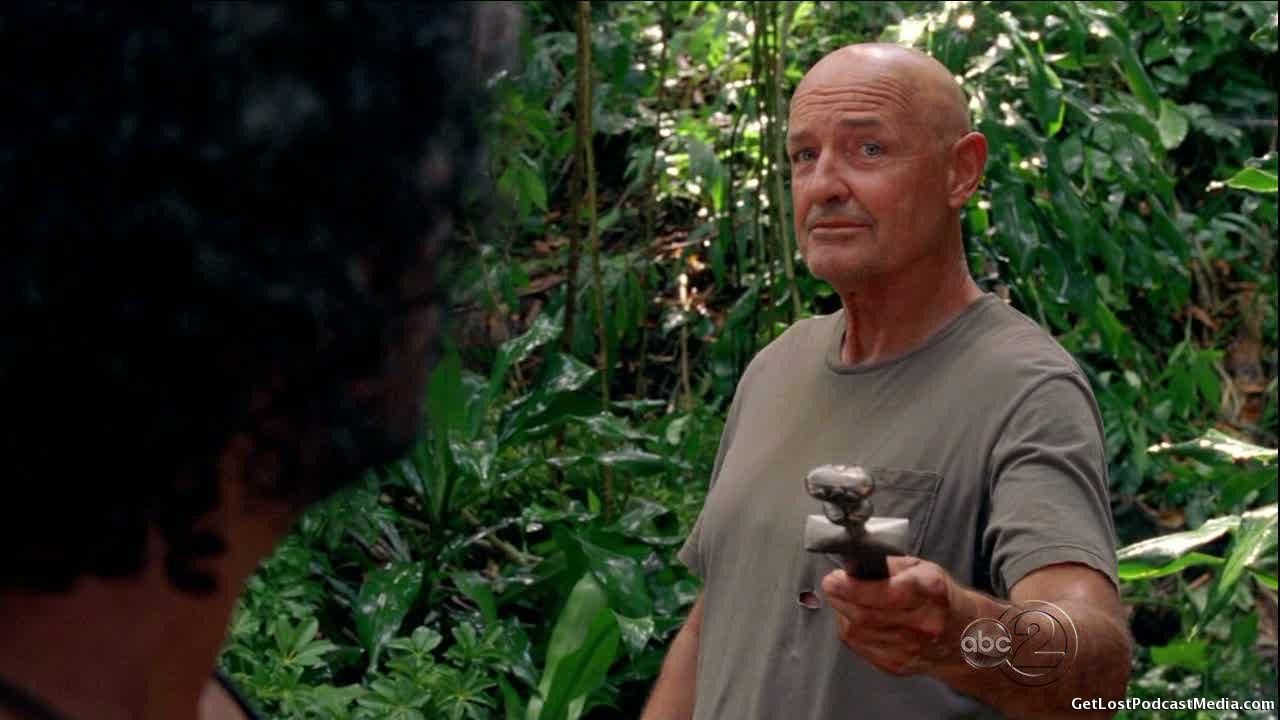
The Monster seems to be quite literally unkillable, but Jacob, as we know, can die.
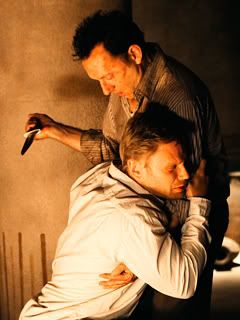
What exactly is Jacob trying to prove to The Monster? If Diogenes finally finds that one honest man, that one incorruptible soul, will that somehow neutralize The Monster's Evil? Is that what the Candidates are for? Not to take over Jacob's seat as Prison Warden, but to turn the Island's secret power from Evil to Good? Is that what OtherLOST is all about? If Jacob finally proves his point to The Monster, does the Island just go away ... or sink to the bottom of the sea? Become a non factor in the world? Can all the Candidates have alternate destinies and just live ordinary, middling happy lives in an ordinary, middling world? Is that what we'll ultimately see happen at the end of the story? And if the story ends with the Island on the ocean floor, where will that leave our battling bros?
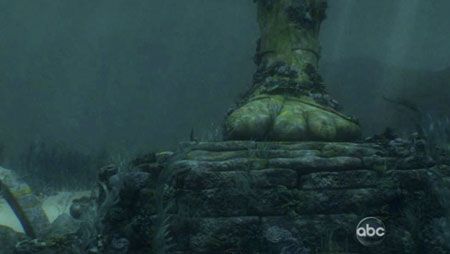
While we continue to ponder all the puzzling possibilities, the rat race continues. The Monster torments Richard as he lies suffering alone in the hold of the ship.
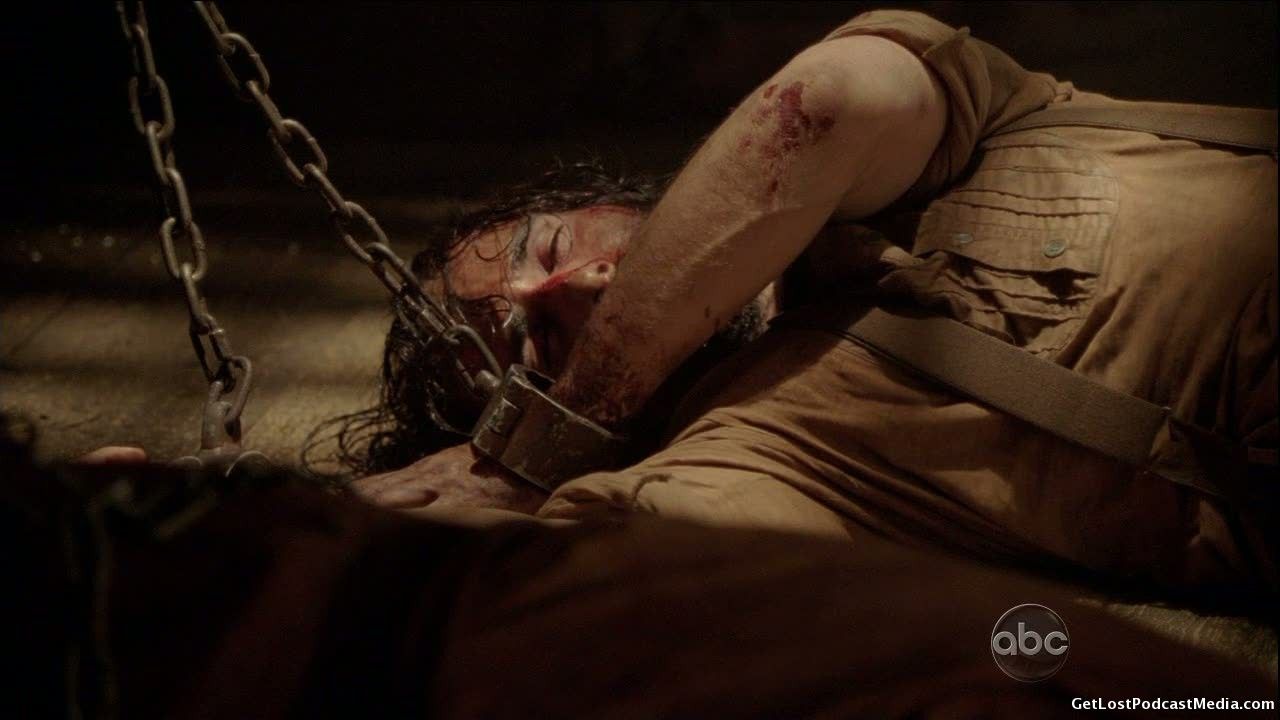
"Alone, alone, all, all alone,
Alone on a wide wide sea!
And never a saint took pity on
My soul in agony." - Coleridge, The Rhyme of the Ancient MarinerLike Lloyd Heinreid in The Stand Richard is a sole survivor, desperately using a nail to try and dig himself free of his chains. When exactly does The Monster start manipulating him? Is it when Whitfield comes down into the hold and starts slaughtering the prisoners?Is it when they hear the officers being torn to shreds on the deck above them? Or when The Smoke devours Whitfield?The onslaught of serial horrors serves the Monster's purpose of freaking Richard out of his bugfucking mind.In fact, it's much the same series of events that happened to our Losties in The Pilot, when after witnessing the death and mutilation of their fellow passengers, they watched The Smoke Monster execute their pilot and toss his bloody remains into a treetop.The Smoke Monster evaluates Richard, much as we've seen him do before - to Locke, to Juliet, to Eko
- and for the time being at least, he spares his life.Is the boar that comes in to eat the rotted flesh also The Monster? Is it another atrocity designed to pulverize Richard's defenses?
We know from Outlaws in Season One that The Monster sometimes enjoys being a boar.
The Monster lets water pour into the cell, but none of it is within reach of Richard's mouth. The whole time he is dying, we keep watching him try to live.But when the boar runs by him and knocks the nail out of his hand, Richard's despair is complete.
That's when The Monster decides to pull the trigger on his scam."And is that Woman all her crew?
Is that a Death? and are there two?
Is Death that Woman's mate?"- Coleridge, The Rhyme of the Ancient MarinerThe Monster brings Richard one last false hope before he reels him in.Ghost Isabella warns Richard that they are both dead and in Hell - the very words we hear Richard say at the beginning of the episode, the words Anthony Cooper said to Sawyer before he was killed in the belly of that same ship.The Monster grants the lovers one scant joyous moment of reunion... before he kills "Isabella" one more time, rips her to pieces and lets Richard hear her agonized screams. Richard tries desperately to save her one last time, but it's futile.Totally bereft, totally helpless, totally hopeless, Richard is softened up well and good by the time Randall "The Monster" Flagg finally climbs down the ladder to claim his prey.
The Monster asks one thing of Richard in return for saving his life - the same thing he asked when Ben summoned him in the Temple basement. Like the resentful child I think he is deep down, the only thing the monster wants is "anything I ask" - which in this case means "kill the devil". Richard agrees. In return, The Monster promises Richard, just like he promised Sayid in Sundown, that he'll grant him his heart's desire. Isabella.Richard, not stopping to consider the limitless possibilities for unintended consequences in this situation, sets out to slay the dragon. Little does he know, as he races along on his rickety bowlegs, that he's only running from one con game to another."As flies to wanton boys, are we to the gods; they kill us for their sport." - Shakespeare, King LearRichard is weak and easily bested by Jacob, who rudely baptizes him and then makes him an offer he can't refuse. Still pretending he's the High Priest of Free Will, Jacob decides he could use a translator, an intermediary to help him influence all that free will he says he's not going to influence.Like when he sends Richard to Portland, Oregon to recruit Juliet for the imaginary firm of Mittelos Bioscience.
Or when Richard is sent to test the specialness of the six year old future Candidate, John Locke.Jacob freed the trembling peasant who feared God's eternal damnation as a murderer. But a funny thing happened on the way to redemption.
Somewhere along the way, the good God fearing Man of Faith became the co-author of a gruesome Island genocide, along with one of Jacob's other murdering acolytes, Ben Linus.
Somewhere along the way, something went horribly wrong.
I think we're probably going to have to face the fact that this is a story without a Good Guy. Just like it's not about the Answers, it's not about Good Guys and Bad Guys either. So what is it about then?
It's not about Prophets. It's not about following the leader. It may be reminiscent of Biblical chapters where God and Satan played dice with the lives of human beings, like they did with Job or with Adam and Eve, but it's not really about that either. Jacob can't absolve sin. He can't reverse death. He isn't God. He just plays one on the Island."The absurd is sin without God." - Camus, The Myth of SisyphusThe Monster has a bit more charisma than Jacob, I think, and there's something oddly sympathetic about him. As NotLocke last week, he told Sawyer his philosophy was "Kill or be killed." We hear Whitfield use the same phrase as he systematically butchers the captives so he won't have to compete with them for resources.What happened to The Monster that he settled on this ethos to guide his life? He doesn't have a body himself. What does he mean when he says he was betrayed and his humanity stolen? Was he once killed, at least in the physical sense? Was he the victim in some ancient melodrama we have yet to witness? Did the Island keep his spirit alive after death and has it now distilled into a supernatural force of rage and retribution? Did Jacob create The Smoke Monster?Whatever happened, Richard is now caught between two masters. Having faithfully served Jacob for a century and a half, his disillusion drives him back to The Monster, to take him up on his ancient offer.He calls out to the omnipresent Monster that "I changed my mind", but though he hears, The Monster doesn't answer.
And it's just as well really. Running from one false prophet to another is an exercise in futility. In absurdity. It's the same madness the button pushers were driven to by the 108 minute clock in the Swan Hatch.
Richard may not be trapped in Hell, but he is trapped in a world where God is dead. Without God, without death, without love, without freedom, what can save Richard from his vast despair? Isabella is dead, on the other side of that great unknown where Richard can never go.
That's where Hurley comes in. We see him early in the episode, looking surprisingly sane as he babbles in Spanish to the night air.Later, after he has translated Isabella's ghost-speak for Richard, Hurley talks briefly to the air again, after Isabella has gone. Who is he talking to when he says "Got it"? He tells Richard that Isabella told him he has to stay and stop the Man in Black from leaving the Island and sending them all to Hell. In other words, he has to stay to save the cheerleader and save the world.Personally, I think Hurley lied to Richard when he said Isabella told him that. That sounds to me like Jacob talking. By the end of the episode, I think we see just how completely Hurley has fallen under Jacob's sway.Hurley was the last Candidate that Jacob chose, and he was chosen for a very special talent that he alone possesses. Miles may be able to speak with the dead, but only Hurley can actually see them and talk to them person to person.It's a beautiful scene when Whoopi Reyes brings Hurleybella to Richard for one last sad goodbye. The camera swirls slowly around the ghostly trio, delicately revealing Isabella as she comes to Richard and speaks lovingly to him and then just as delicately, as she goes away again."Devils can be driven out of the heart by the touch of a hand on a hand, or a mouth on a mouth.” - Tennessee WilliamsIt is as sad and sweet a moment between lovers as we've ever seen on LOST. It's also profound. Richard can never be with Isabella, but that doesn't mean he has to bury his heart underground like he did her necklace.When he puts the necklace back around his neck at the end of the episode, Richard is making a choice.He chooses to be human. He chooses to live. Trapped in the absurdity of a life without death, Richard's only choice is between life and despair. And as he showed throughout this episode, as all the Losties have shown time and again throughout the story, what Richard wants most of all is To Live.Like I said, I don't think the Answers really matter all that much anymore. I used to think it was all going to come together like a clock, but now I'm pretty sure that if it did, it wouldn't be the kind of clock that would ever be able to tell time. Maybe something more like this:“…because races condemned to one hundred years of solitude did not have a second opportunity on earth.” - Gabriel Garcia Marquez
Having seen the statue crumble, I'm not sure we really need to know how it got built.I don't know if we'll learn why the Others spoke Latin. I don't really care what the Black Rock was doing between leaving Portsmouth, England in 1845 and taking on its human cargo in the Canary Islands in 1867. The puzzle has shifted now from this kind of arcane fact checking to trying to unravel the bigger questions of good and evil and loving and hating and living and dying.
